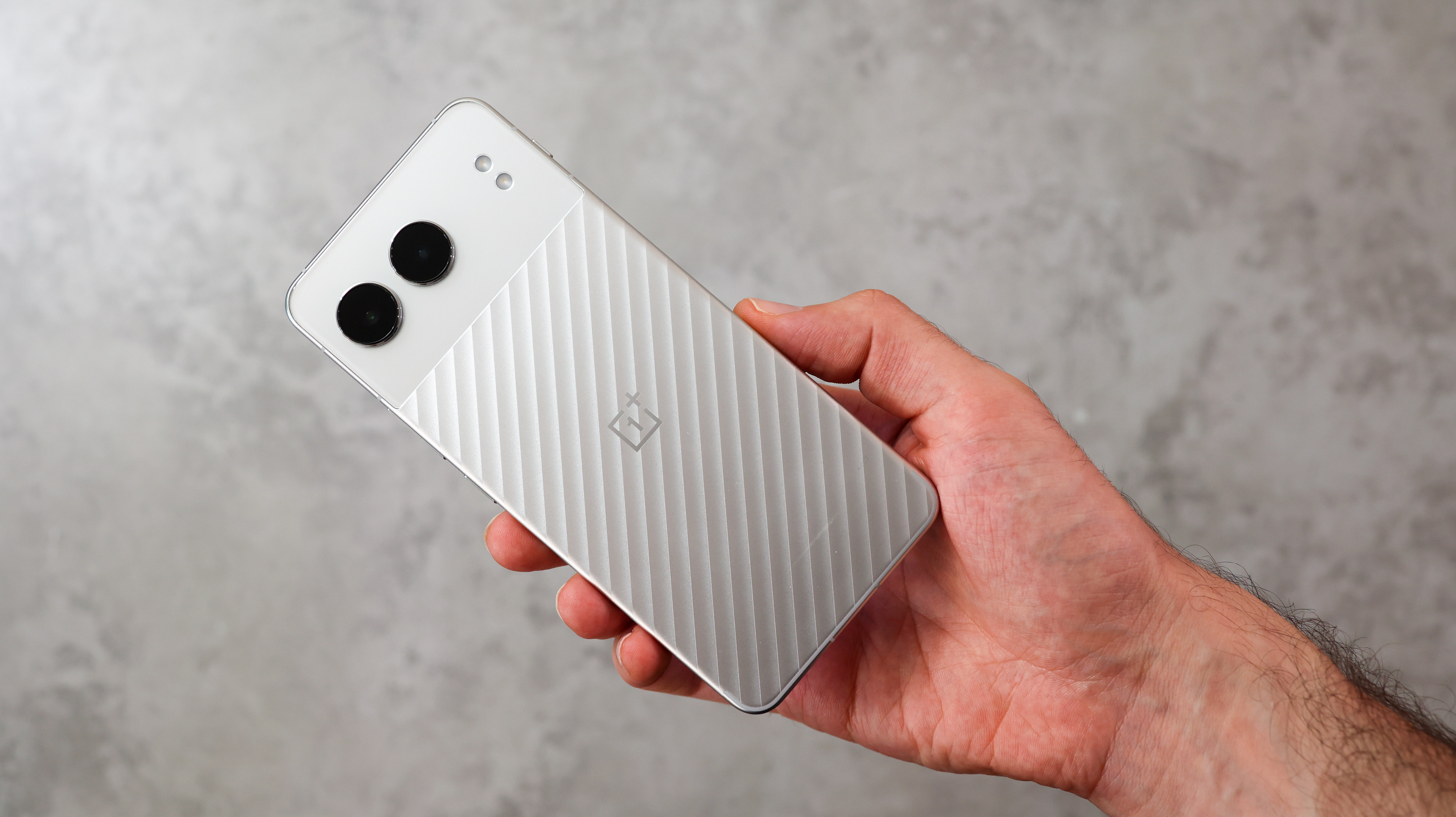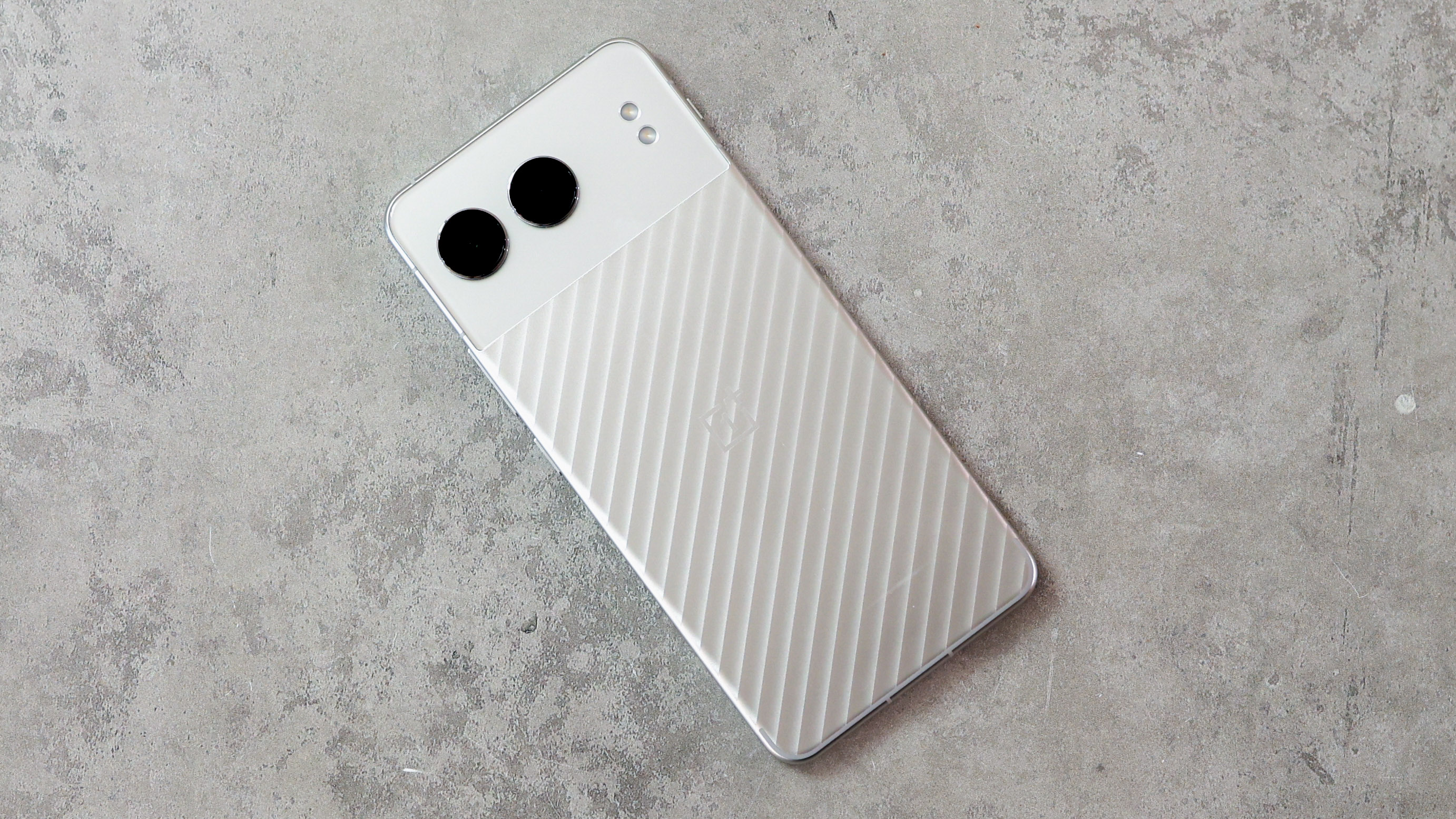
OnePlus has impressed us with its flagships – the OnePlus 12 and OnePlus Open have class-leading cameras in their respective categories – but how are lower-cost OnePlus phones like the Nord 4?
Going up against the Google Pixel 8a and Xiaomi Redmi Note 13 Pro Plus, the Nord 4 has its work cut out for it, and a quick glance at the phone’s camera spec doesn’t blow us away either. But after four weeks with the phone, it’s definitely greater than the sum of its parts and a smart choice for anyone looking to hold onto their phone for a while.
So what's the Nord 4 all about? Because it isn't a flagship line, the Nord series misses out on OnePlus's partnership with Hasselblad, so the camera is less of a focal point here. The phone does, however, sport a respectable Sony LYT600 primary sensor with an f/1.8 lens and OIS.
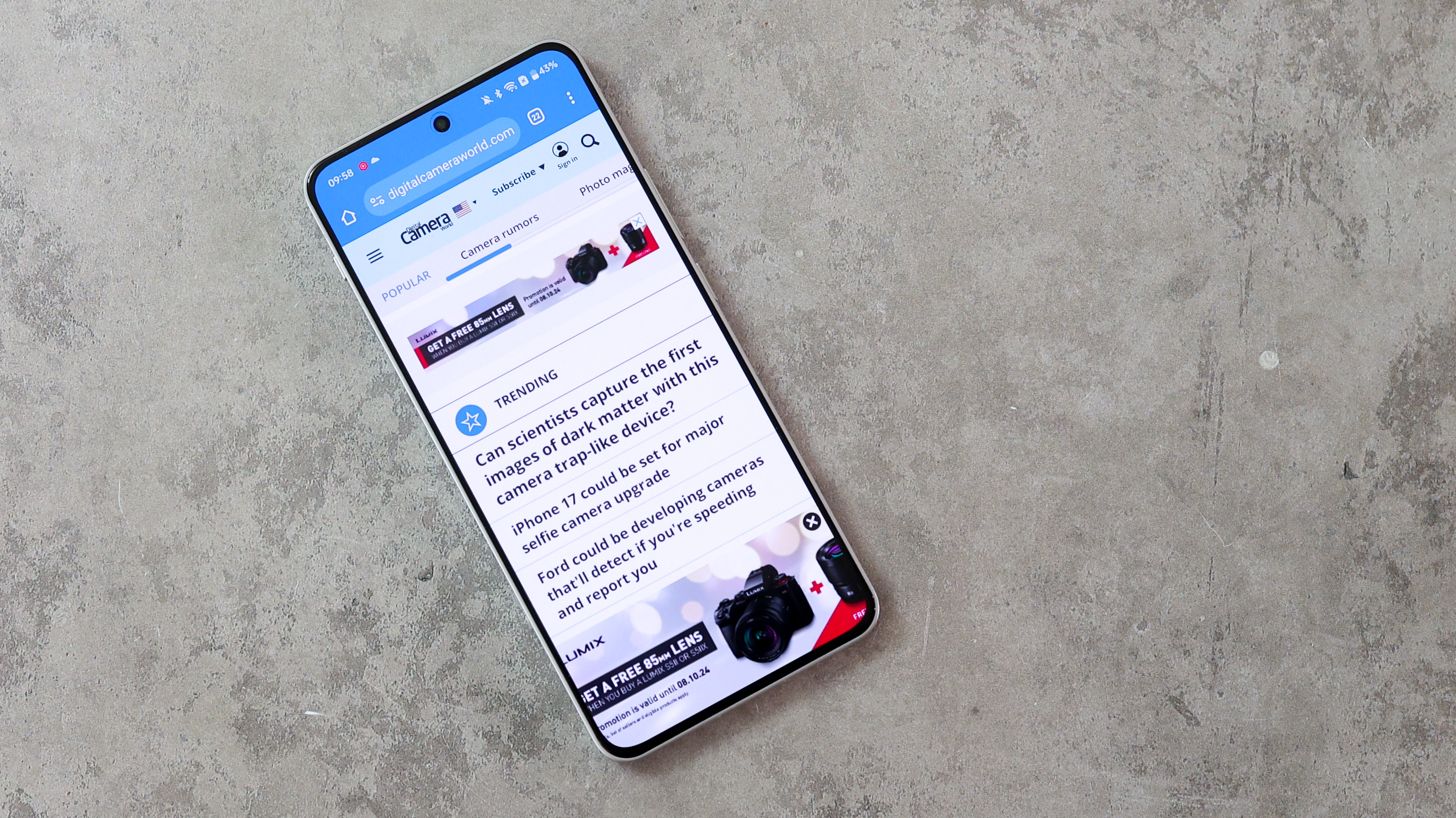
More standout than the camera is the Nord 4's unibody design, quality screen, best-in-class battery size and charging speeds, and relatively nippy performance. Moreover, OnePlus promises years of support, which isn't something typically seen outside the Apple, Google and Samsung camps.
OnePlus Nord 4 Design and Screen
The OnePlus Nord 4's unibody design is standout, particularly in the color we tested – Mercurial Silver – with its striped metal back that looks textured, but feels smooth to the touch. For a more subdued alternative, you could go for Obsidian Midnight, which has a matte black finish, or Jade Green, which looks minty fresh by contrast.
Whichever color Nord 4 you pick up, it's skinny 8mm frame slips into a pocket, which the body nuzzles comfortably into a hand. The fact the sides and back are made from one piece of metal and smoothed to perfection make sure the whole phone feels cohesive.
The two cameras around the back of the Nord 4 are encased within a glass panel, the left side sports a notification slider with three settings – sound on; vibrate; silent – and the right side houses the power and volume buttons. At the base of the phone is a USB-C port, a loudspeaker and a dual-SIM slot.
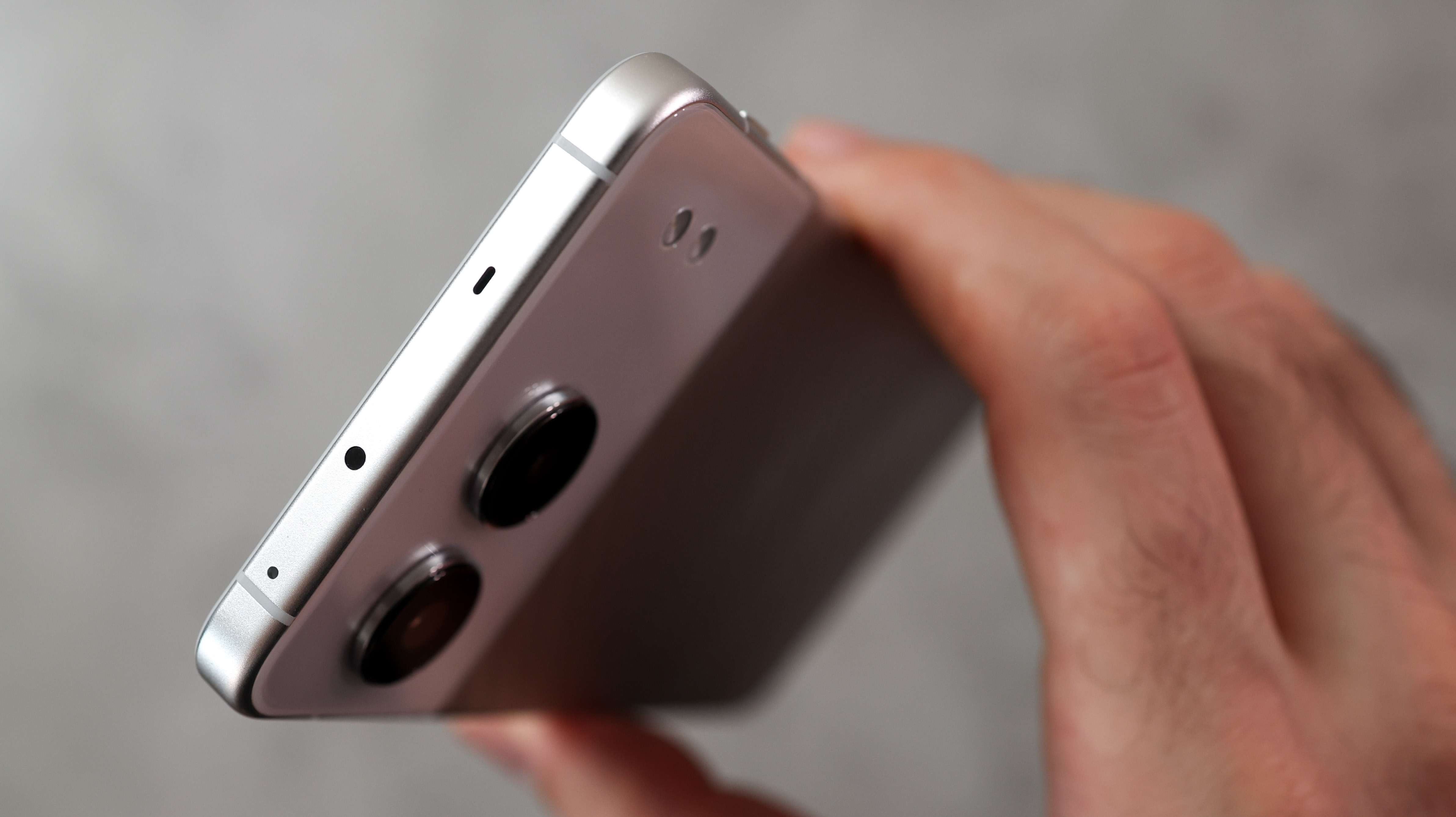
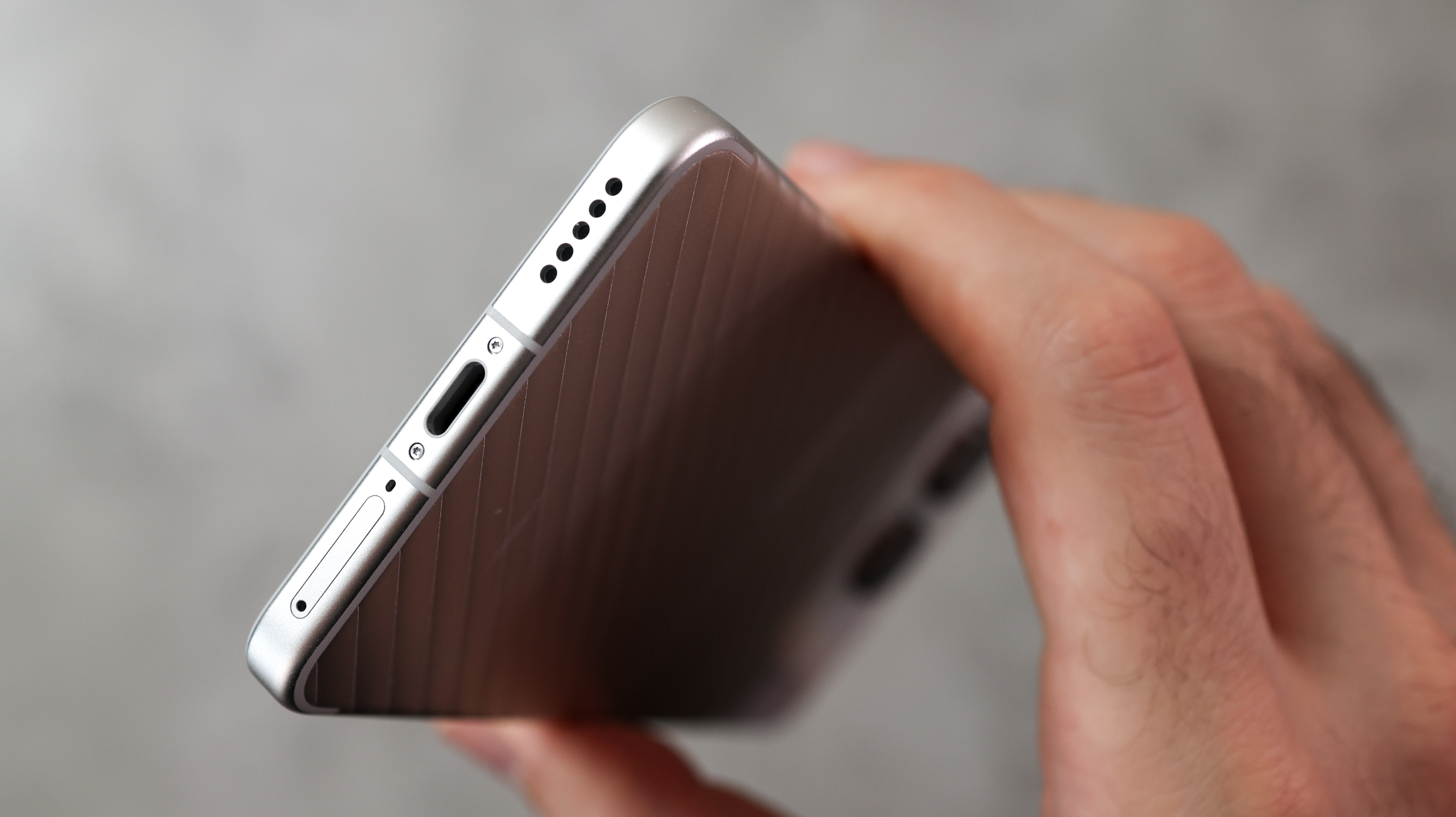
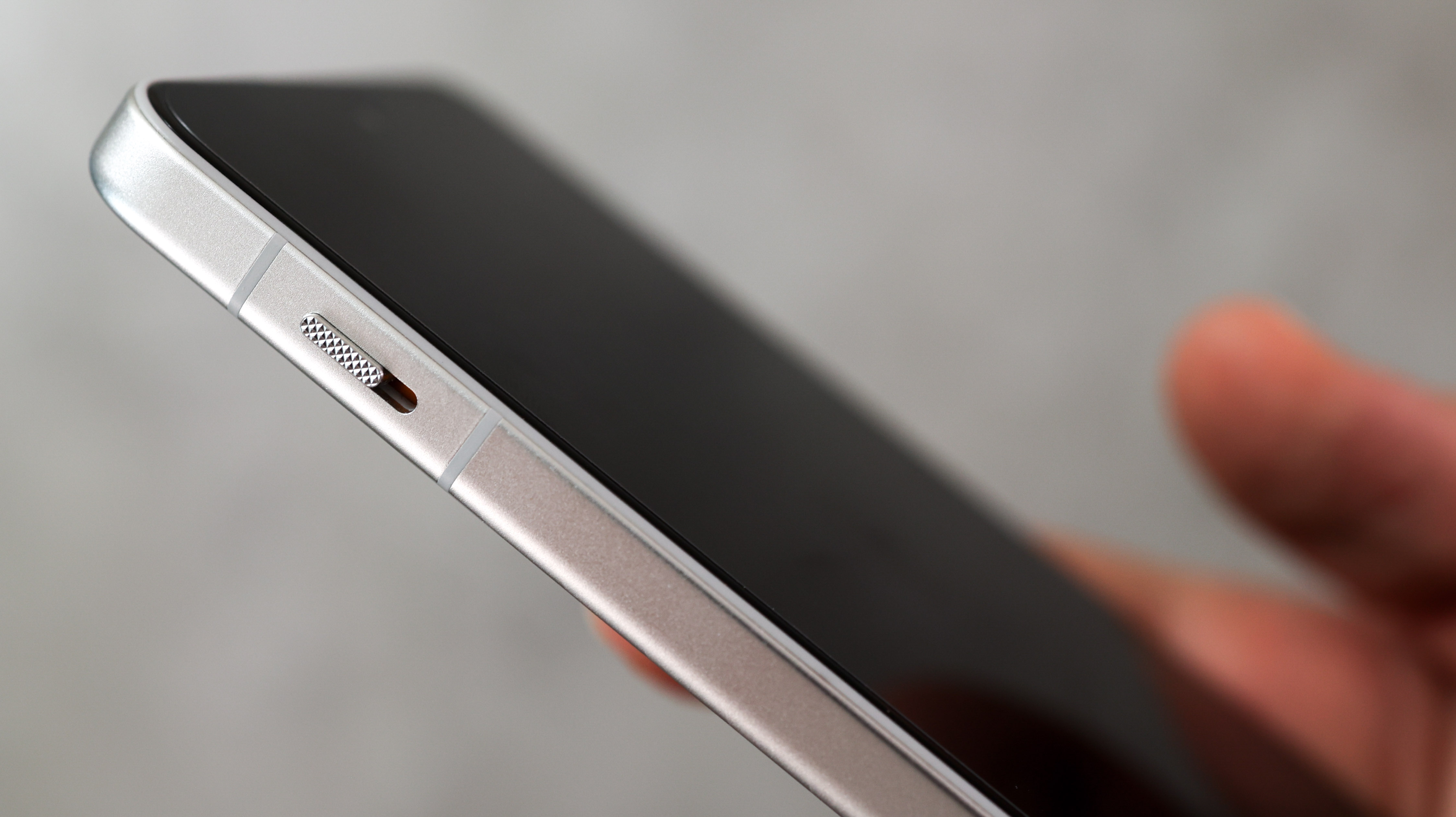
The OnePlus Nord 4 is IP65 dust and water-resistant and can be used when the screen's wet thanks to OnePlus's AquaTouch technology. There's no case or charger in the box, but there is a pre-fitted screen protector, a charging cable, and a SIM eject tool.
From the front, the Nord 4 is all-screen, with its 6.74-inch AMOLED screen and its 93.5 percent screen-to-bezel ratio. The 2772 × 1240 resolution gives it a crisp 450 PPI pixel density, and the screen's smooth too, gliding at up to 120Hz (though the default refresh rate is capped at 90Hz in the settings). The Nord 4 also shines at up to 2,150 nits when playing back HDR content and 1,100 nits in high brightness mode.
OnePlus also includes multiple display modes in the settings to help you eke out a little extra from its screen. Standard options like Vivid and Natural are available, and there's also Cinematic, which uses the P3 color gamut, and Brilliant for extra vibrancy.
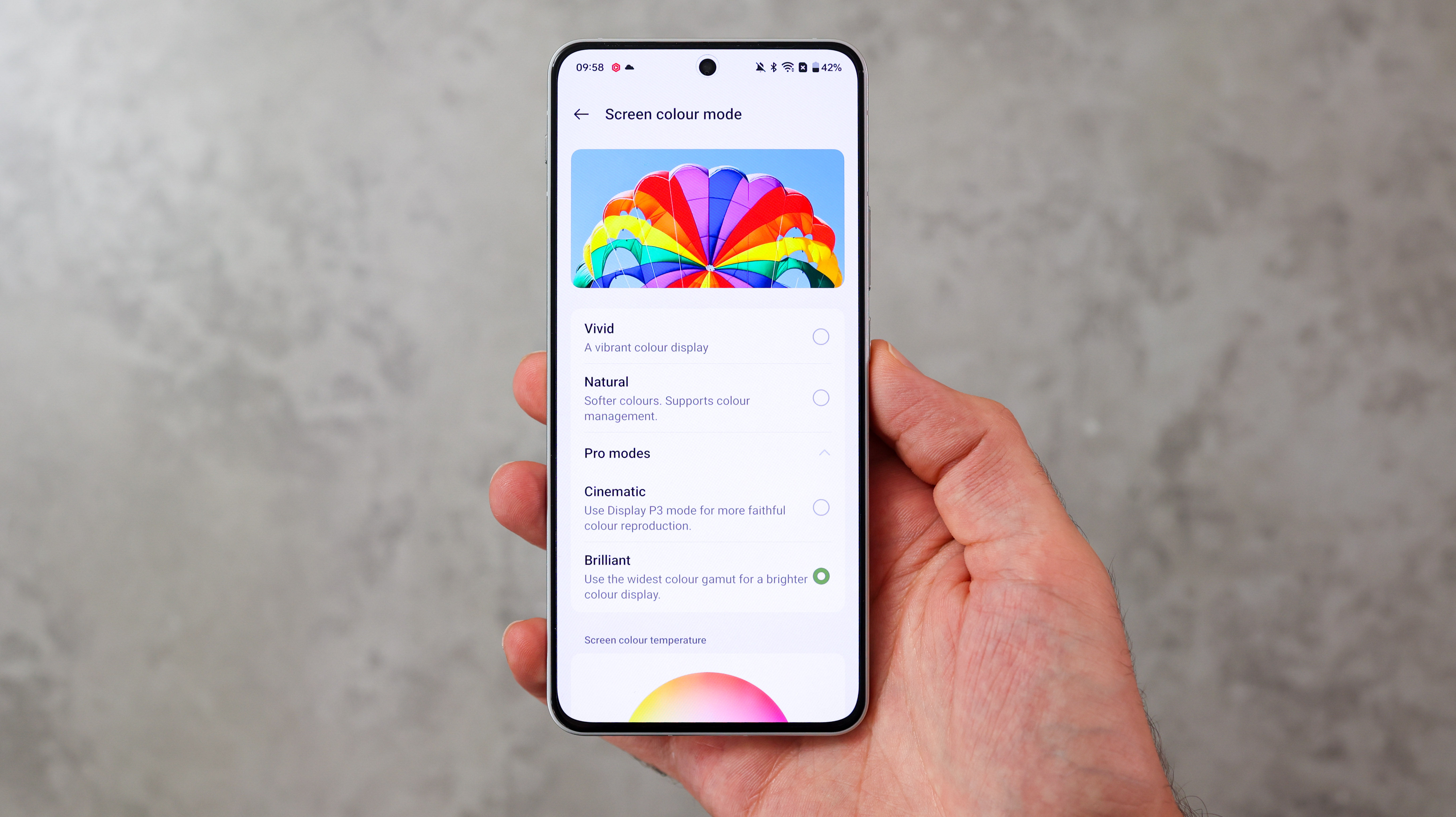
The Nord 4's display is excellent for a midrange phone, with solid viewing angles, a punchy picture, and deep blacks. The lack of bezel helps it edge ahead of its key competition in the West, the Nothing Phone 2a Plus. Having tested it in 40ºC China and 35ºC Milan, outdoor viewing also impressed, proving it to be one of the best-looking screens around at the price.
OnePlus Nord 4 Camera Specs
While OnePlus has typically impressed with its cameras in the past, the Nord 4 is on the back foot out of the gate thanks to small camera sensors. The primary camera is a 50MP LYTIA 600 sensor with a 1/1.95-inch size, and the ultra-wide camera with its tiny 1/4-inch sensor size and 8MP resolution is even less promising.
What saves the Nord 4's photos, however, is OnePlus's flagship RAW domain photo processing, so while there's no Hasselblad here, it does look like the Nord 4 benefits from OnePlus and Oppo's HyperTone image engine, or at least aspects of it.
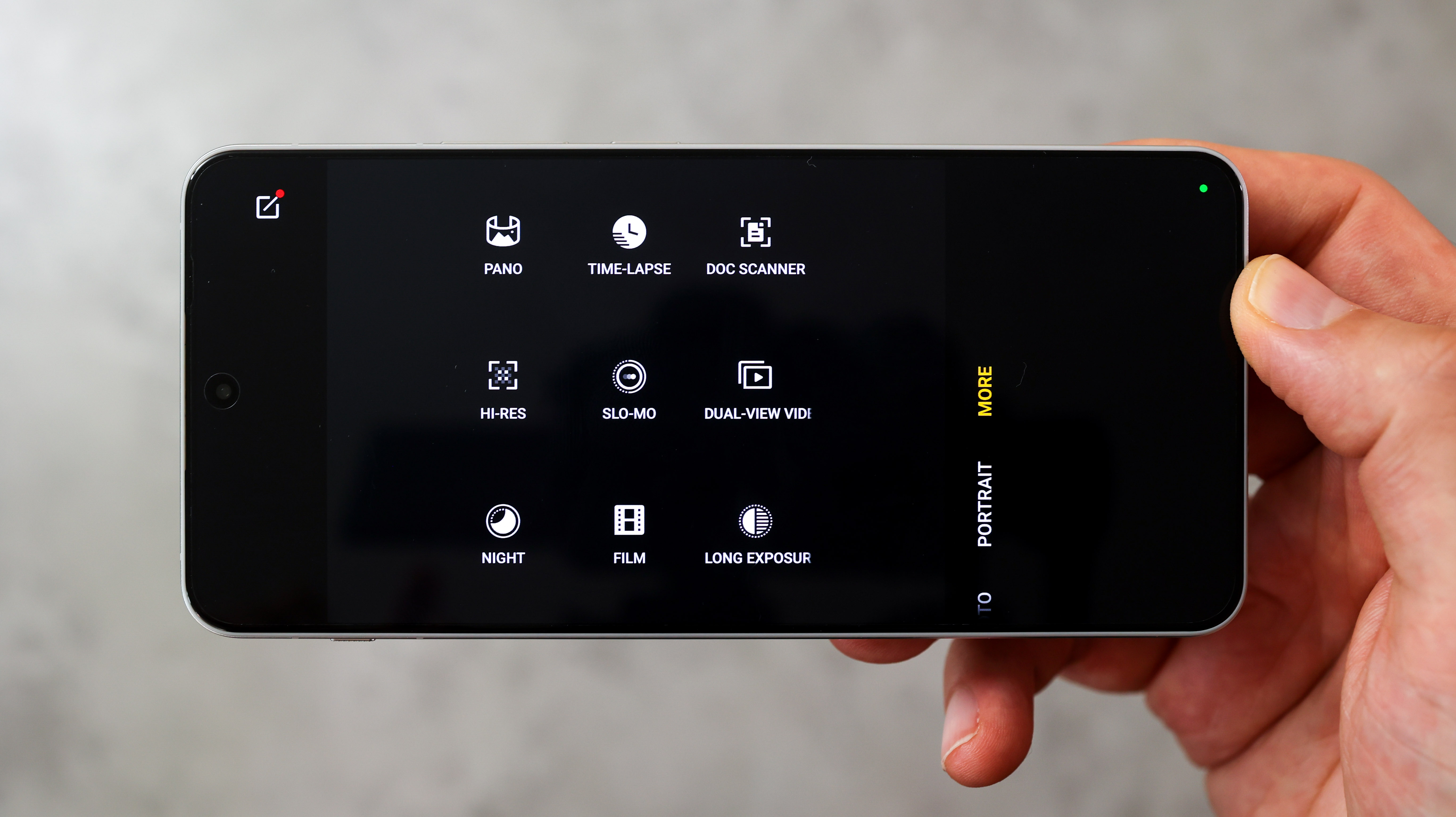
Breaking down all the camera specs, the Nord 4 has two around the back and one on the front:
Wide: 50MP, 1/1.95-inch sensor; f/1.8 26mm lens with OIS and autofocus.
Ultra-wide: 8MP, 1/4-inch sensor; f/2.2 16mm fixed-focus lens.
Front: 16MP, 1/3-inch sensor; f/2.4 24mm lens with autofocus.
While the Nord 4 does have a Pro Mode for manual control, it doesn't support RAW photo capture natively, though you can overlay a histogram, activate focus peaking, an on-screen level, and there's a high-resolution 50MP mode.
The Nord 4's primary camera captures 4K video at up to 60fps, while the ultra-wide and selfie cameras cap out at 1080p. It's also worth noting, only the primary camera can access Pro Mode capture, creating a slightly jarring experience across the camera mix.
OnePlus Nord 4 Camera Review
We've tested a lot of phones and can usually get the measure of one after seeing its specs, but the Nord 4 surprised us. The photos across all its cameras are relatively balanced in bright environments, and the auto-night mode saves the day when the lights drop, though there are some caveats.
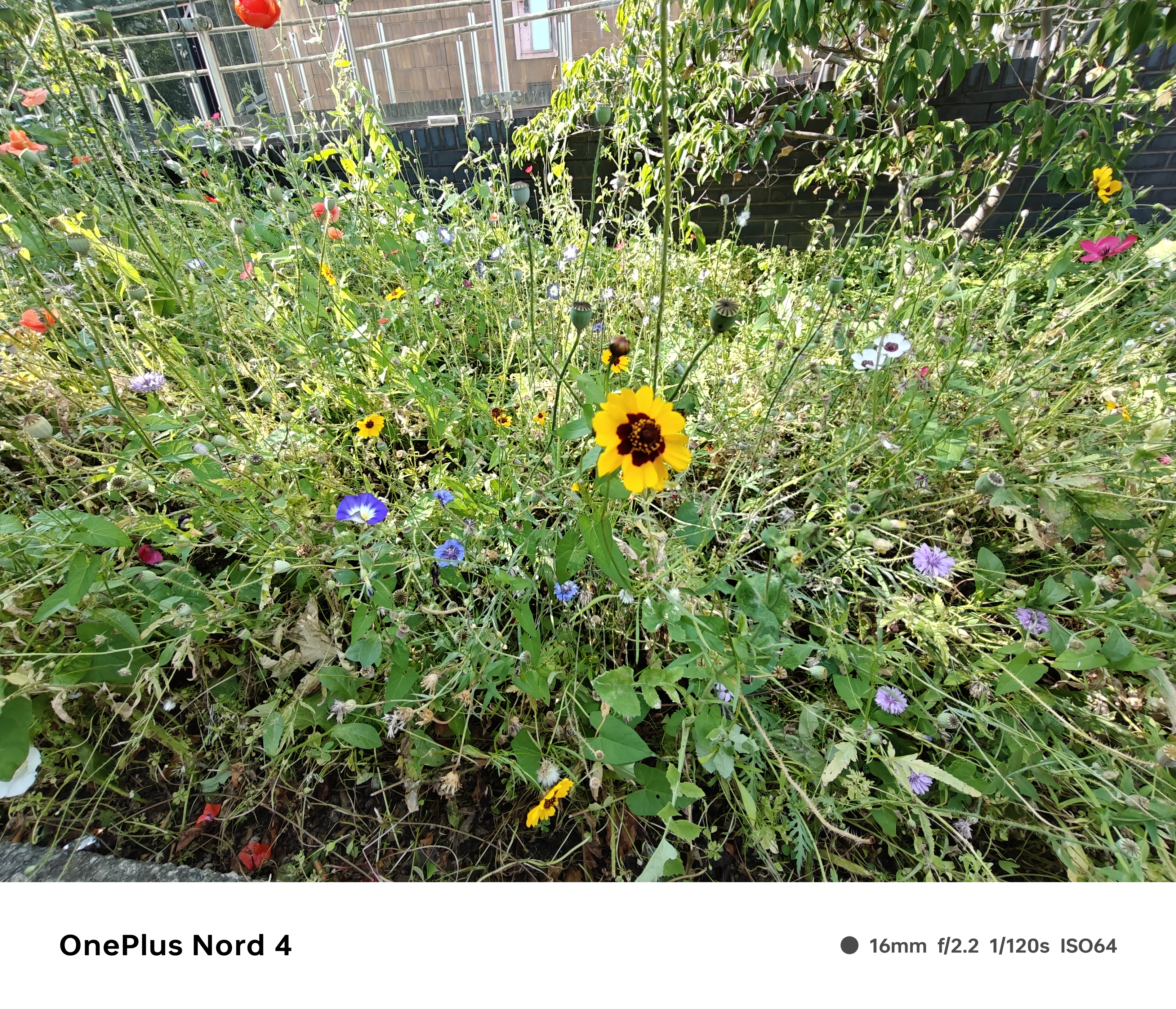
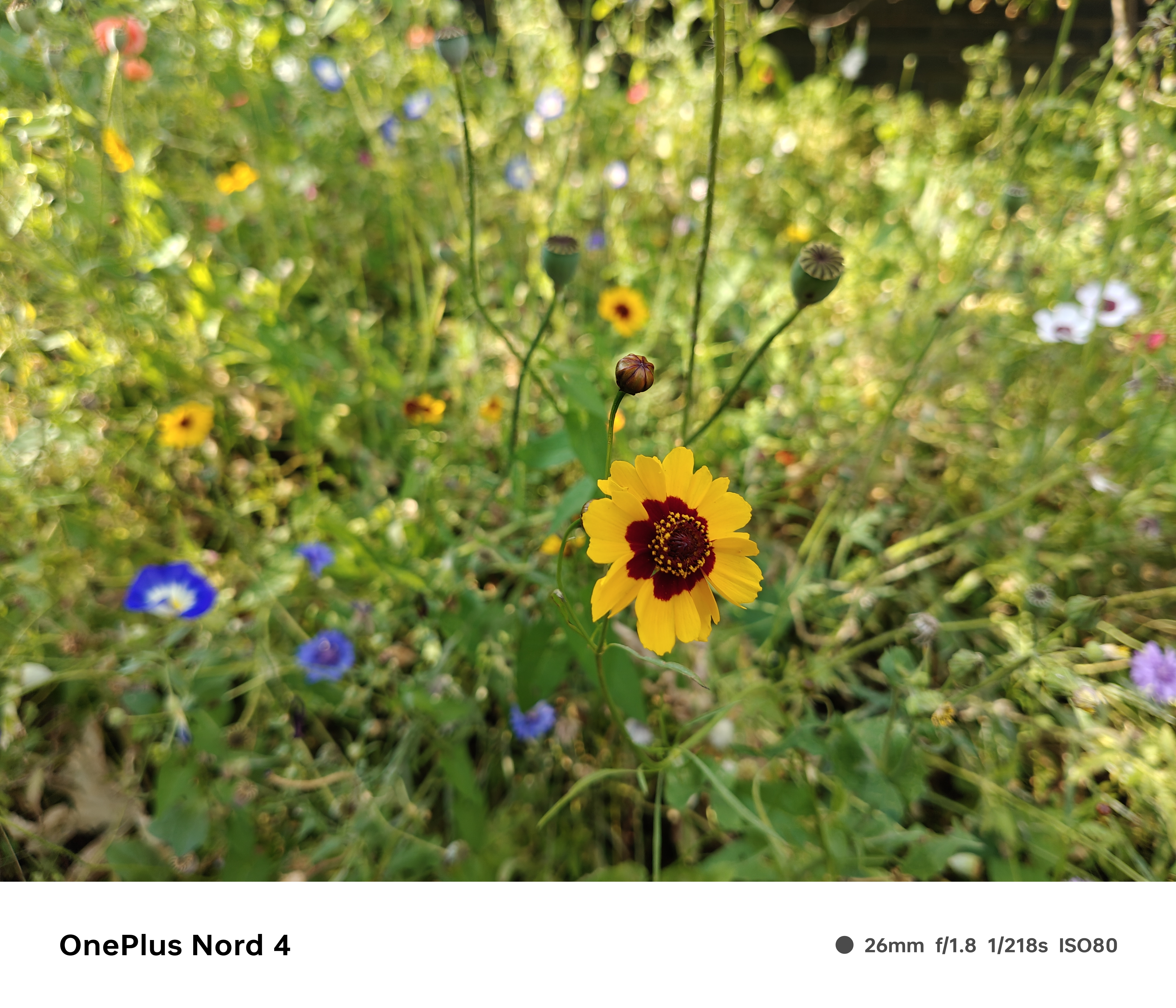
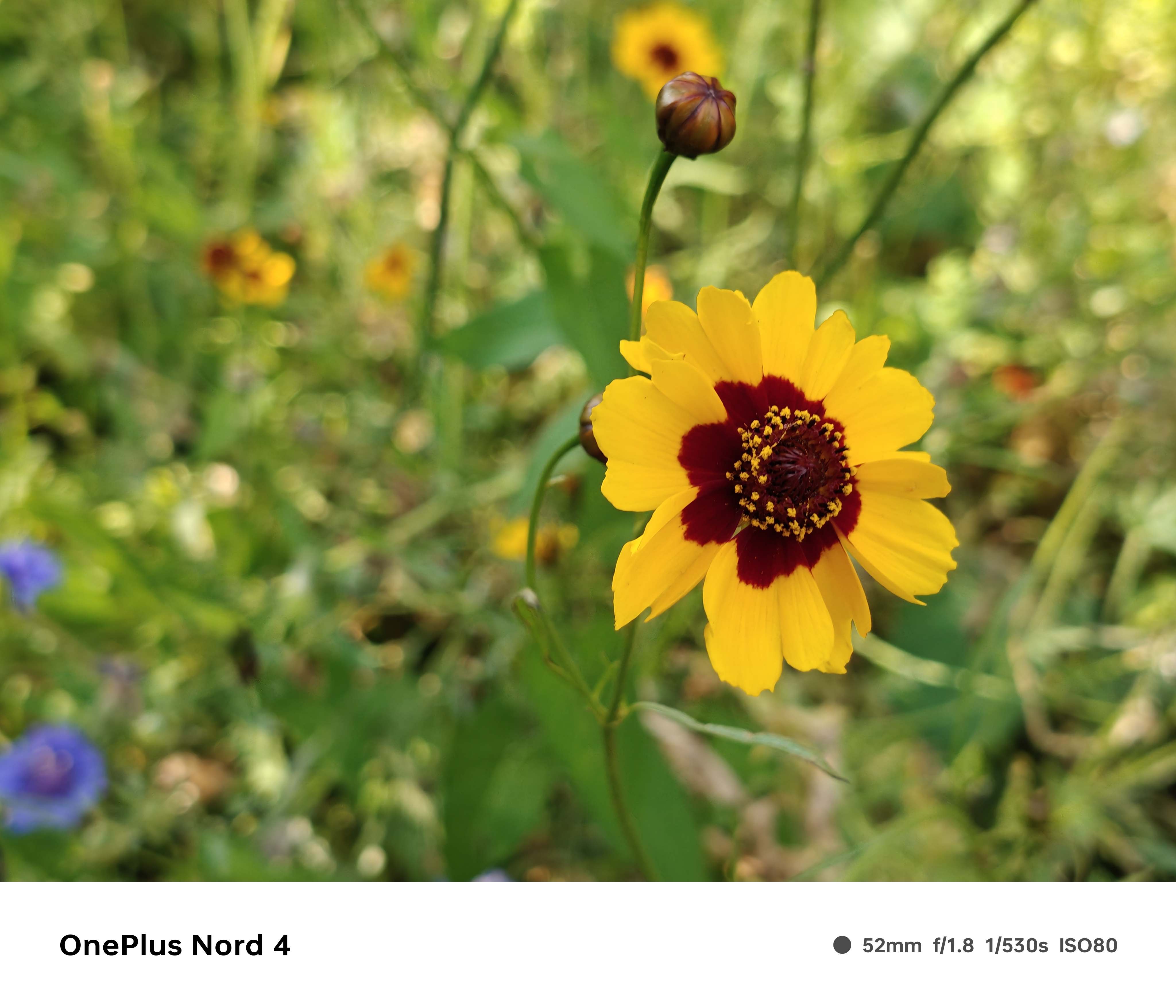
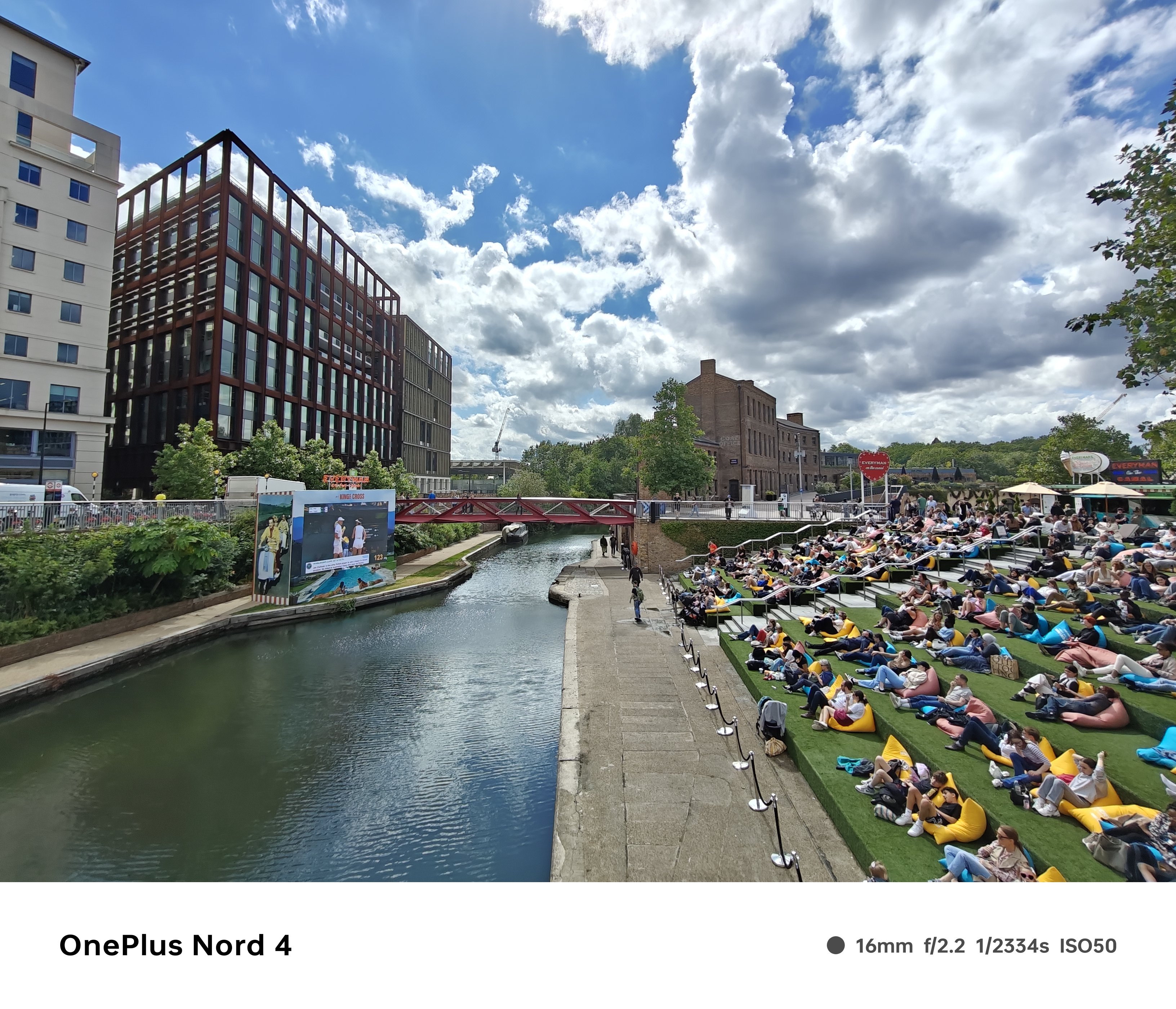
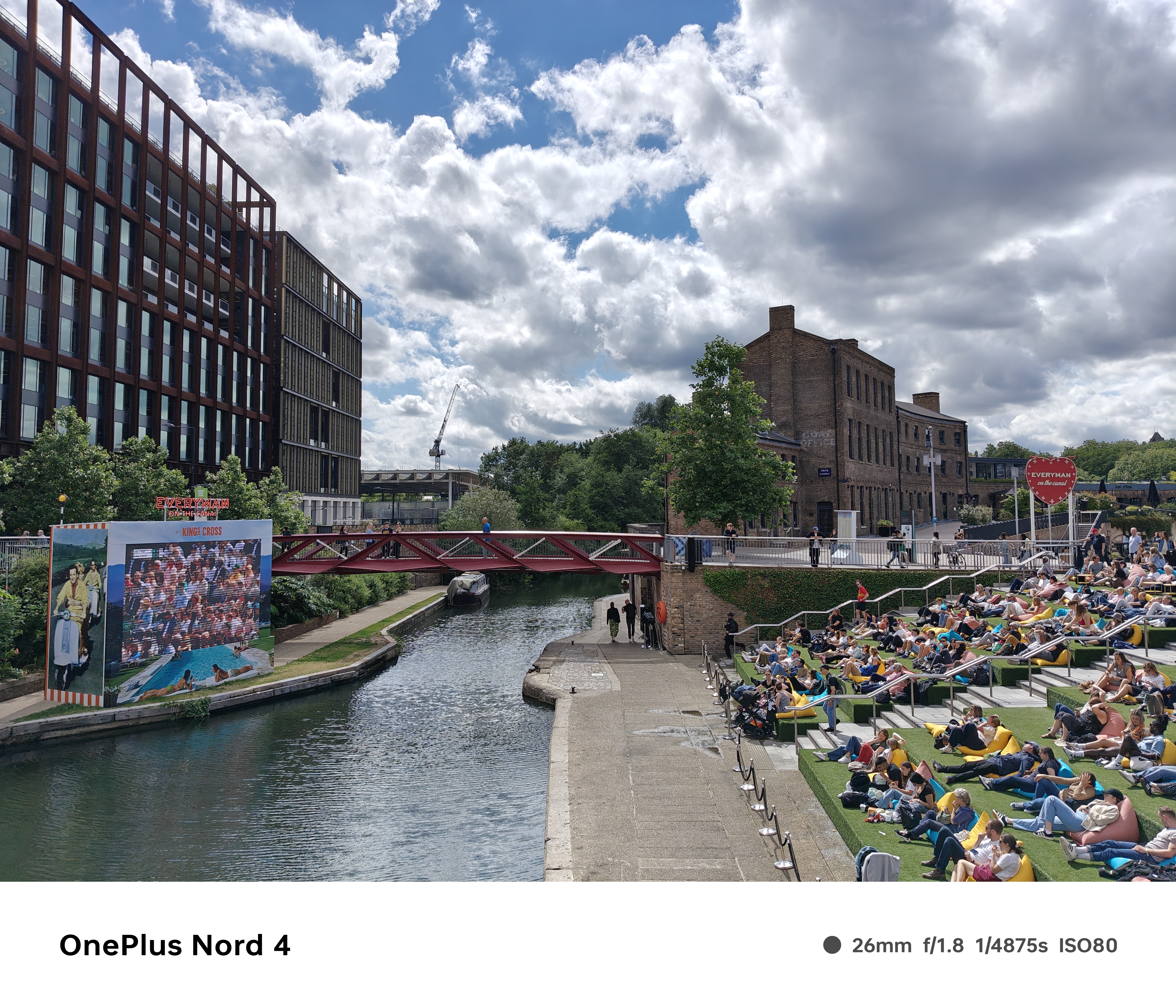
The first thing to note is that the Nord 4 doesn't ramp up sharpness and saturation to the degree some other midrange smartphones do. Colors have punch, but they still tend to look natural.
Photos taken on the main camera are nice and sharp and can be cropped into comfortably. There's also a 50MP mode to unlock full-resolution images, however, the ultra-wide camera's 8MP resolution's shots don't hold up so well when cropped.
The Nord 4 applies a moderate HDR effect to photos, but it tends to be respectful of shadows, so they aren't brighter than any highlights, which is something we see in more heavy-handed HDR processing. When the lighting is right, the result is a versatile, typically reliable camera experience.

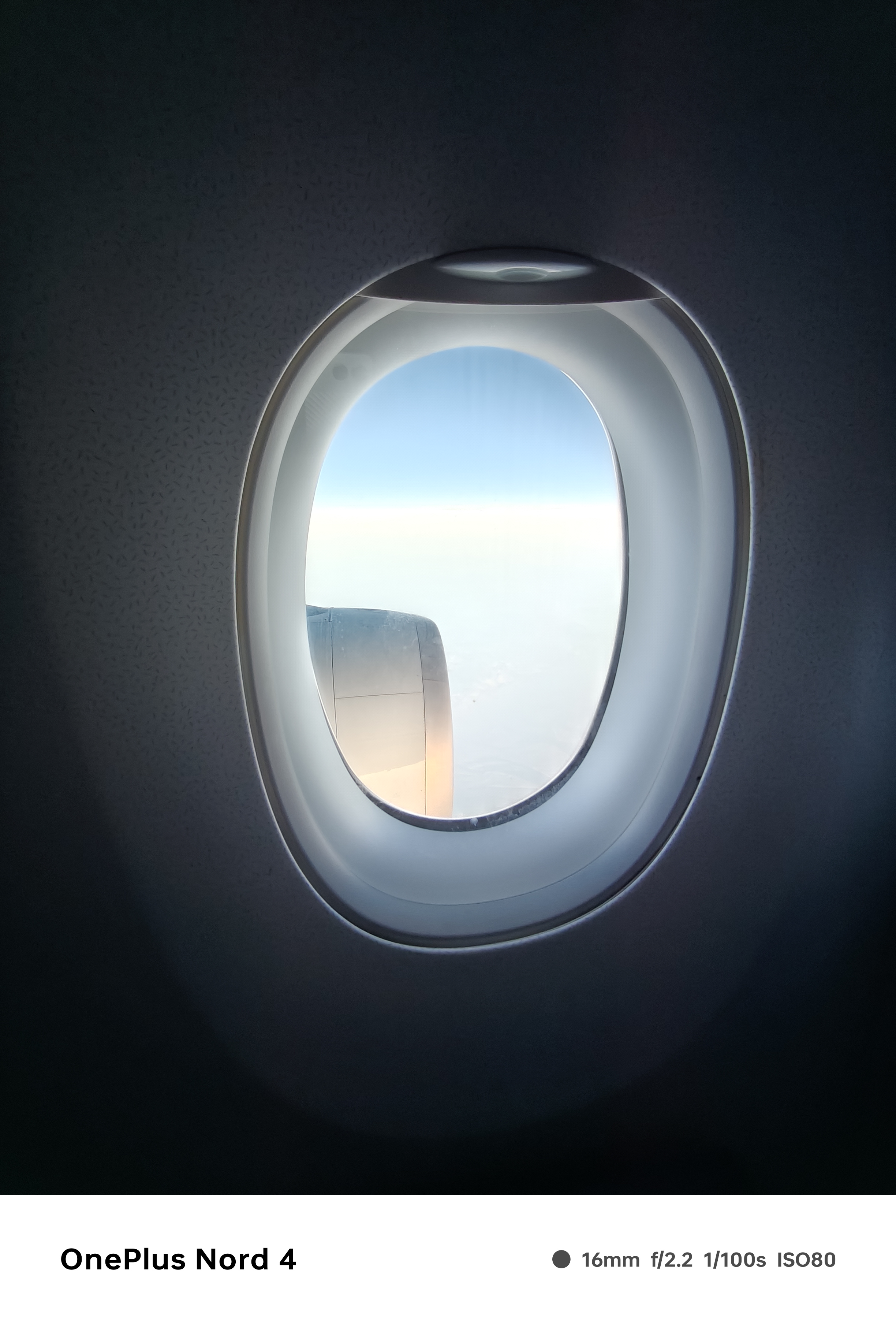
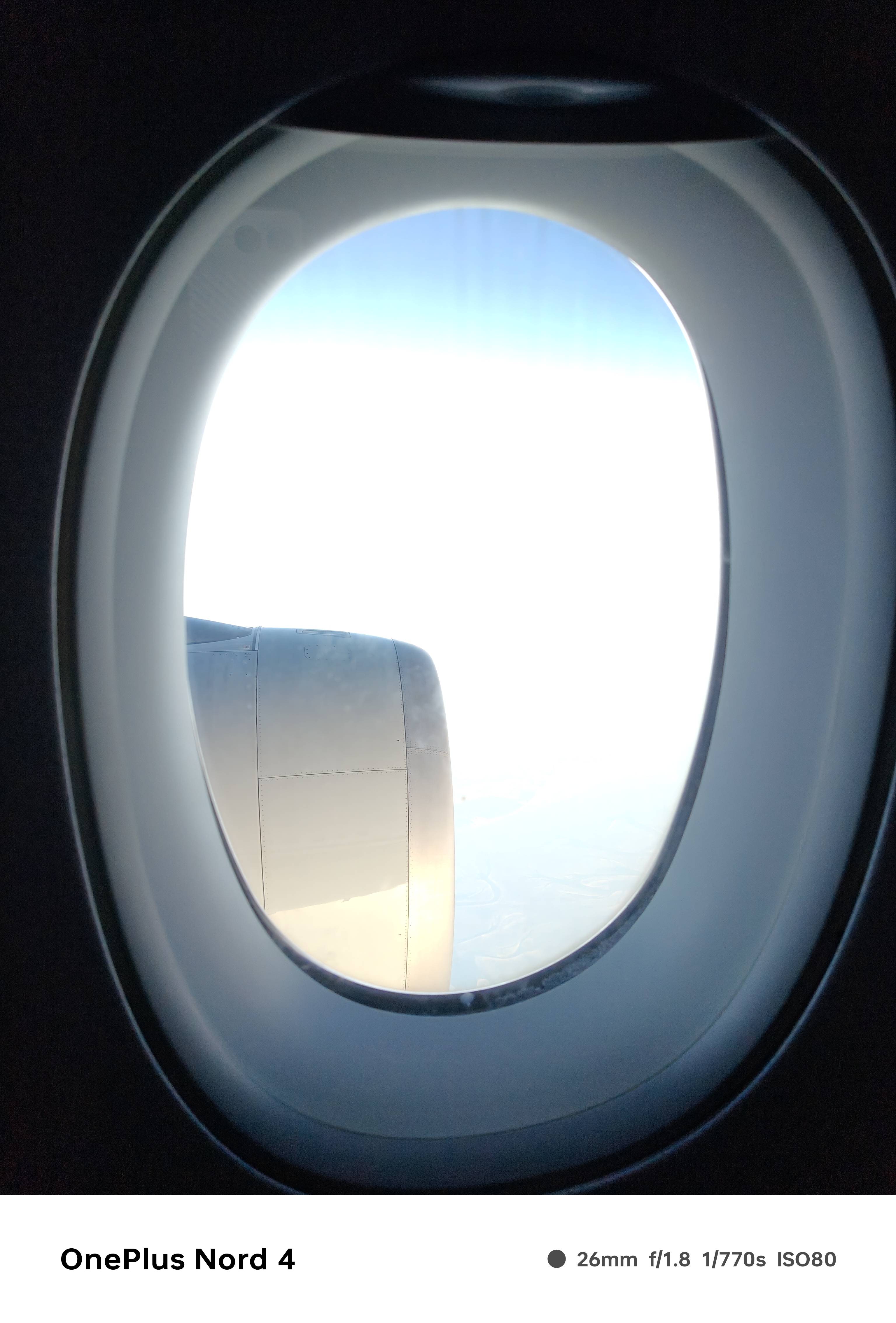
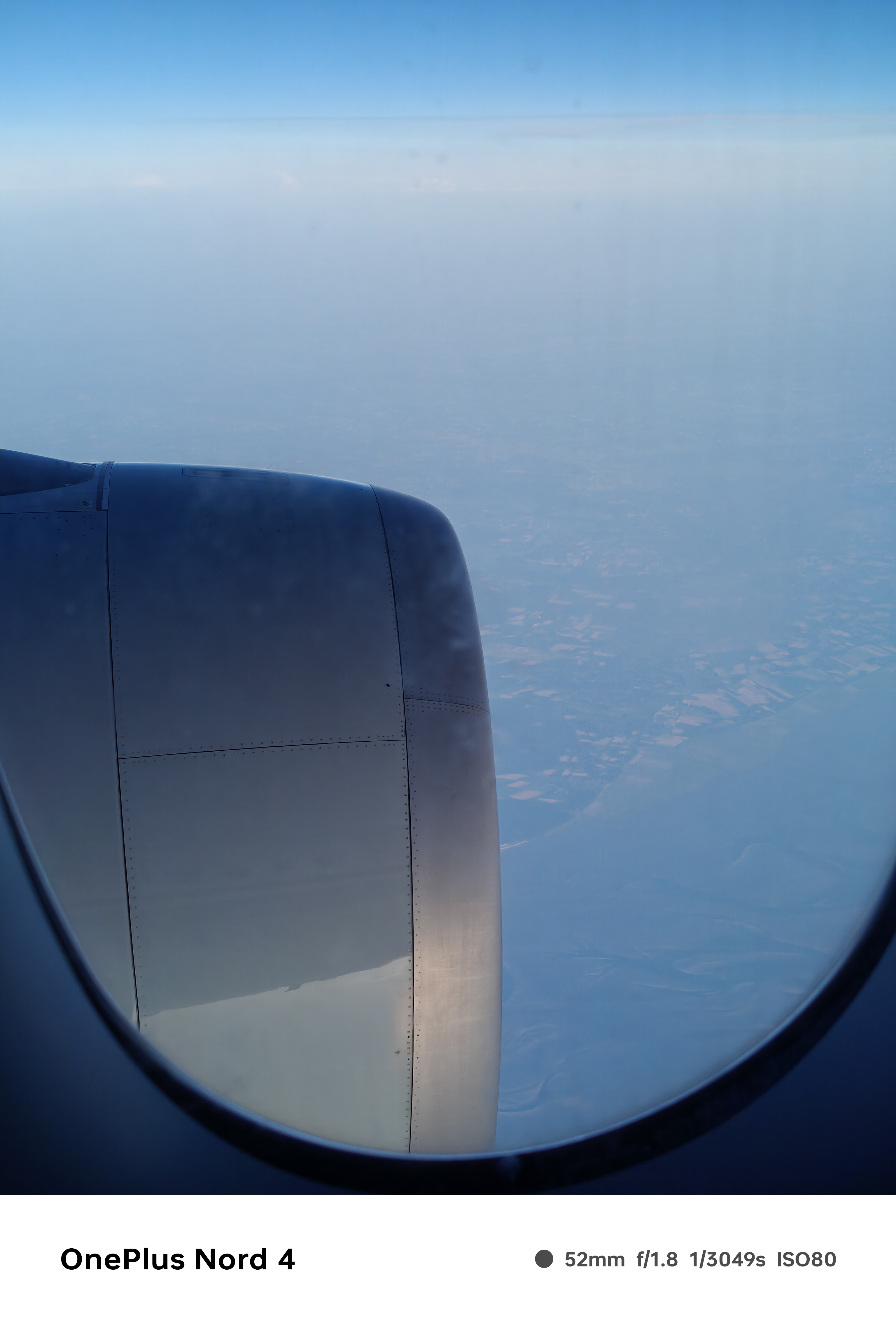
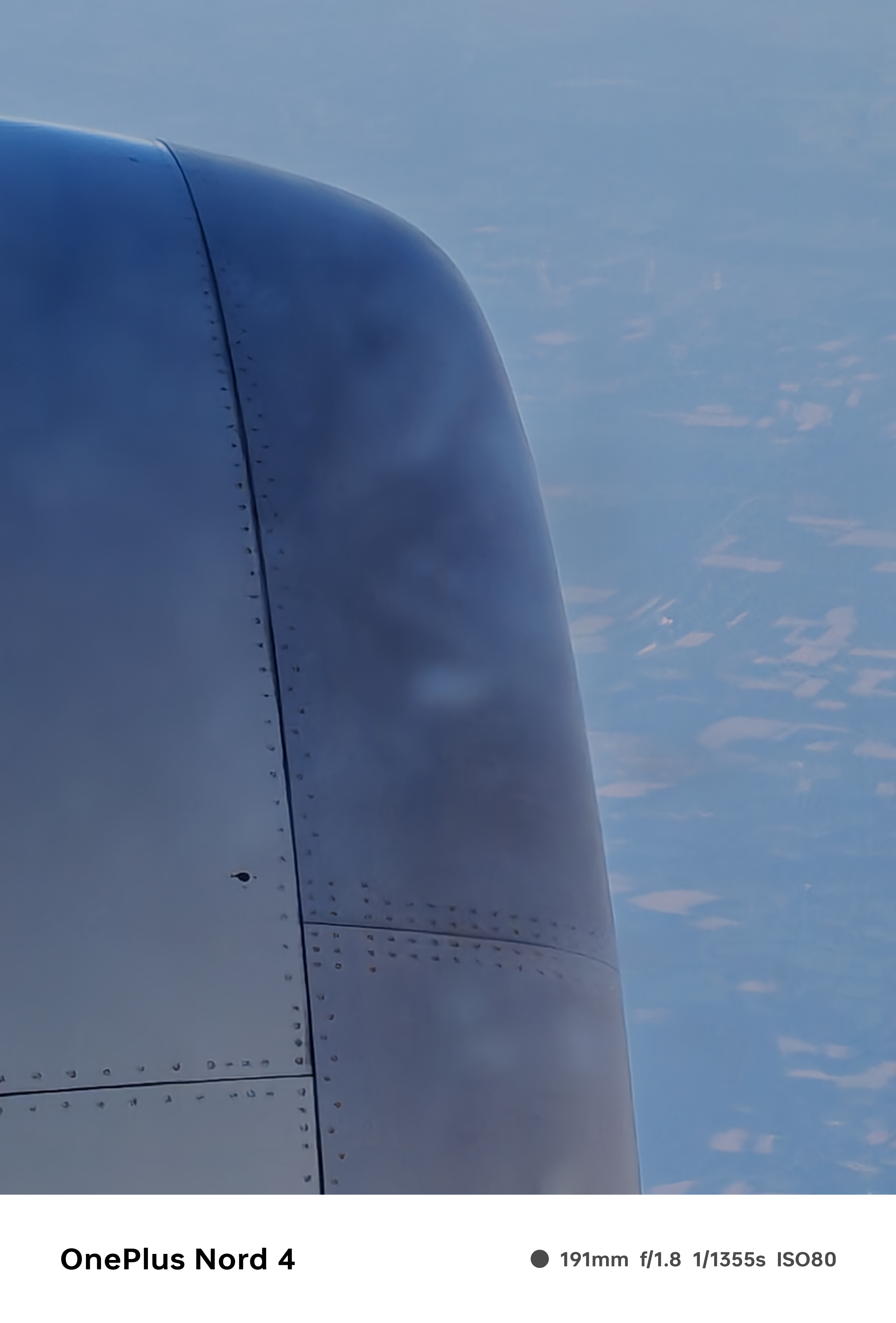
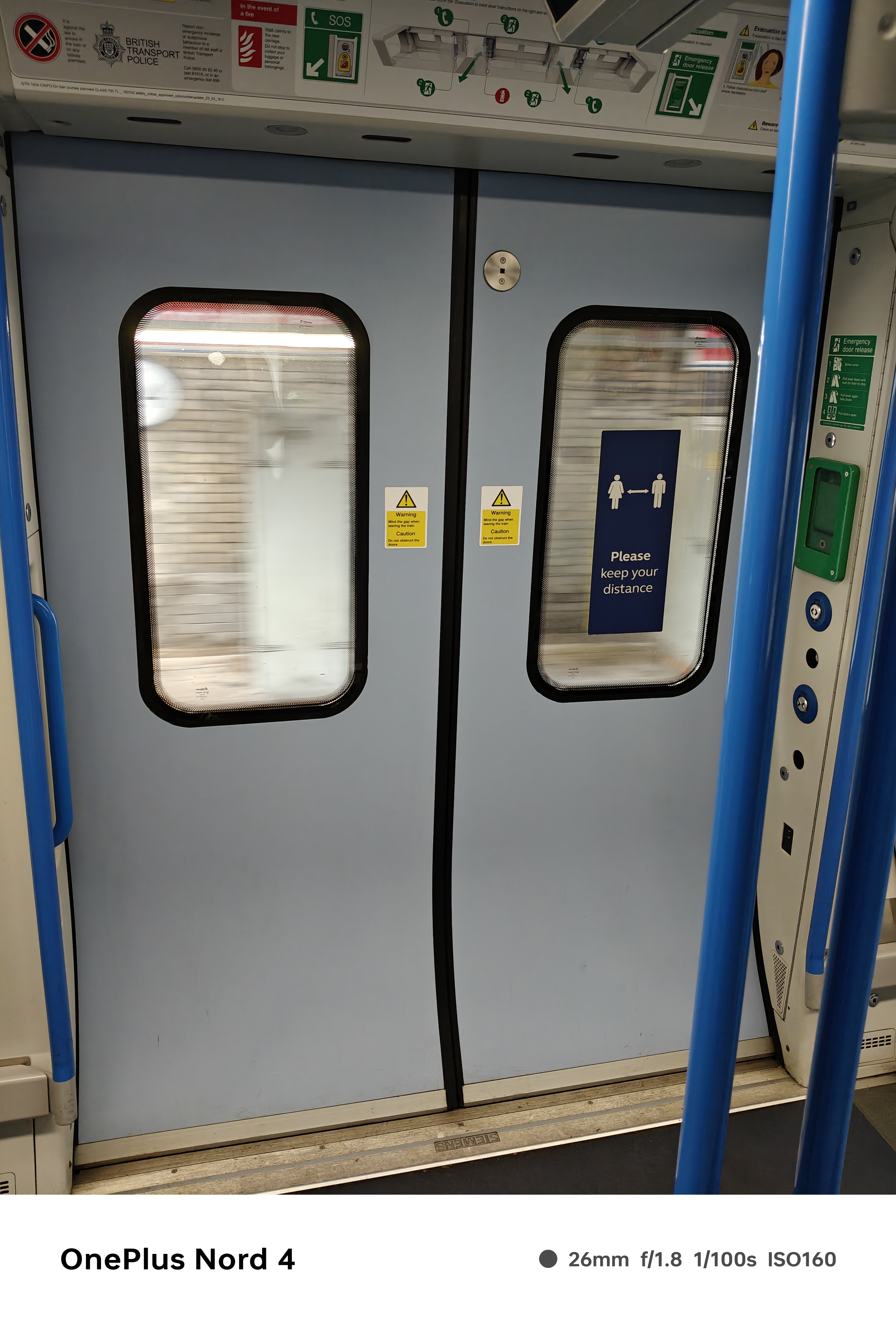
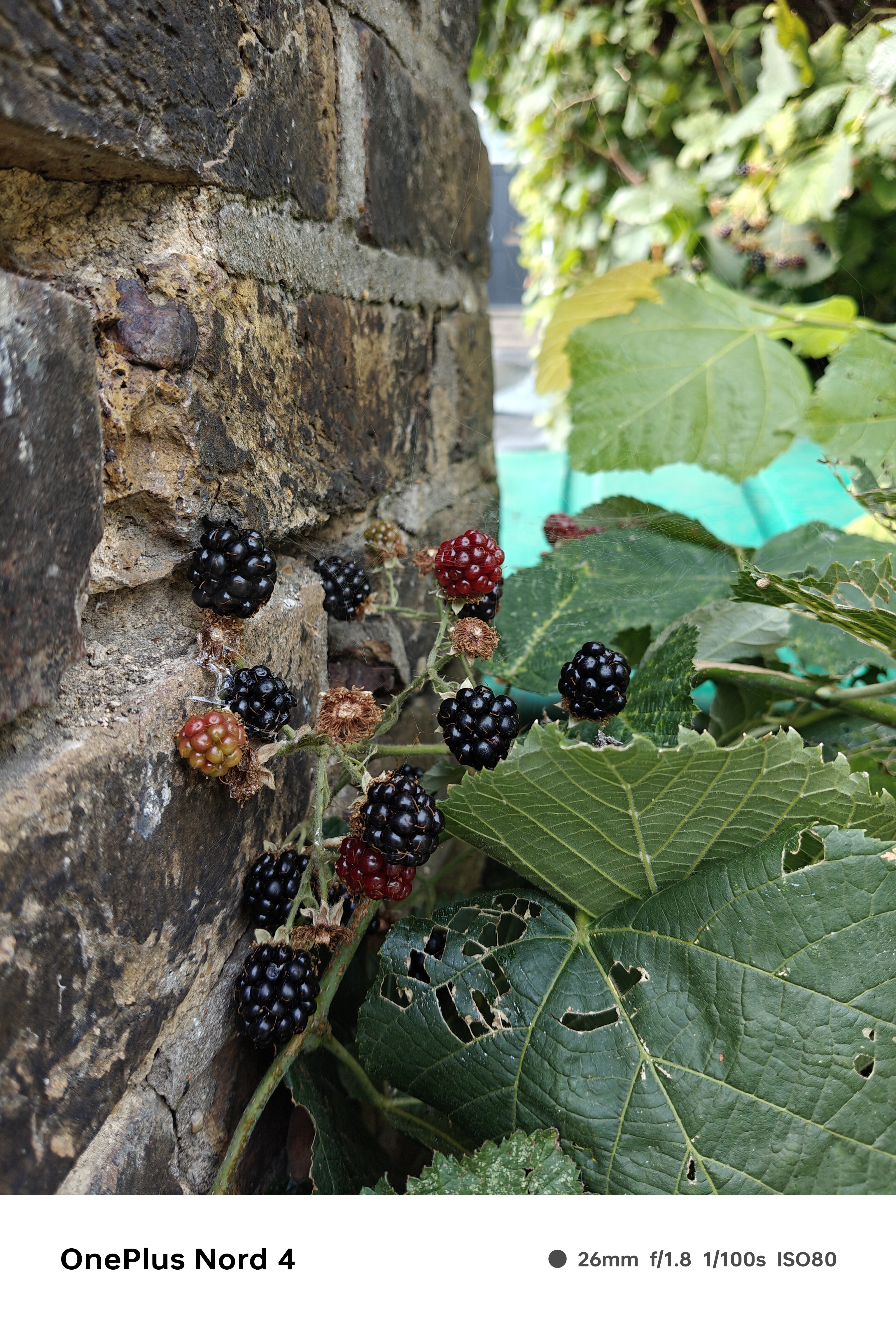
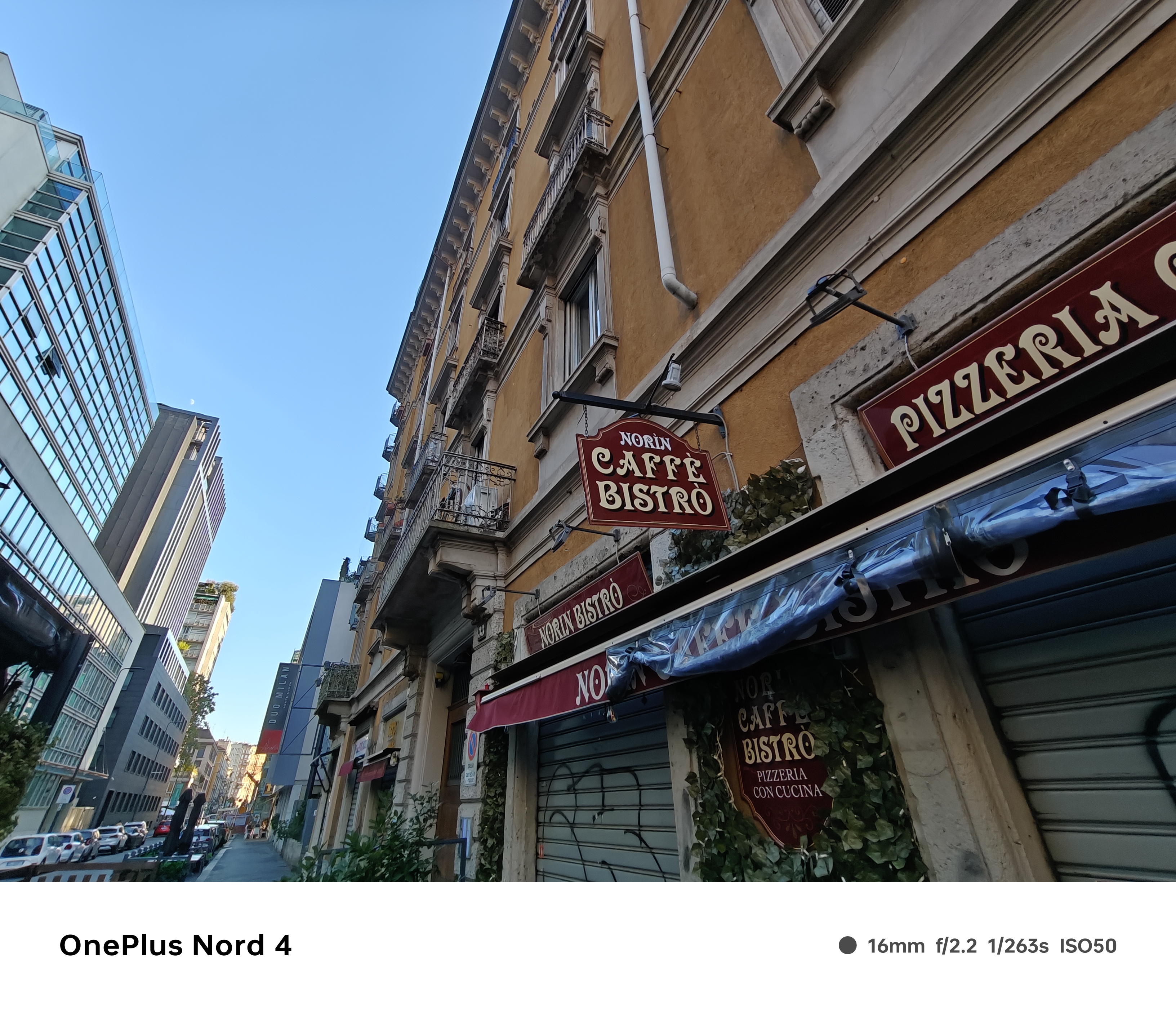
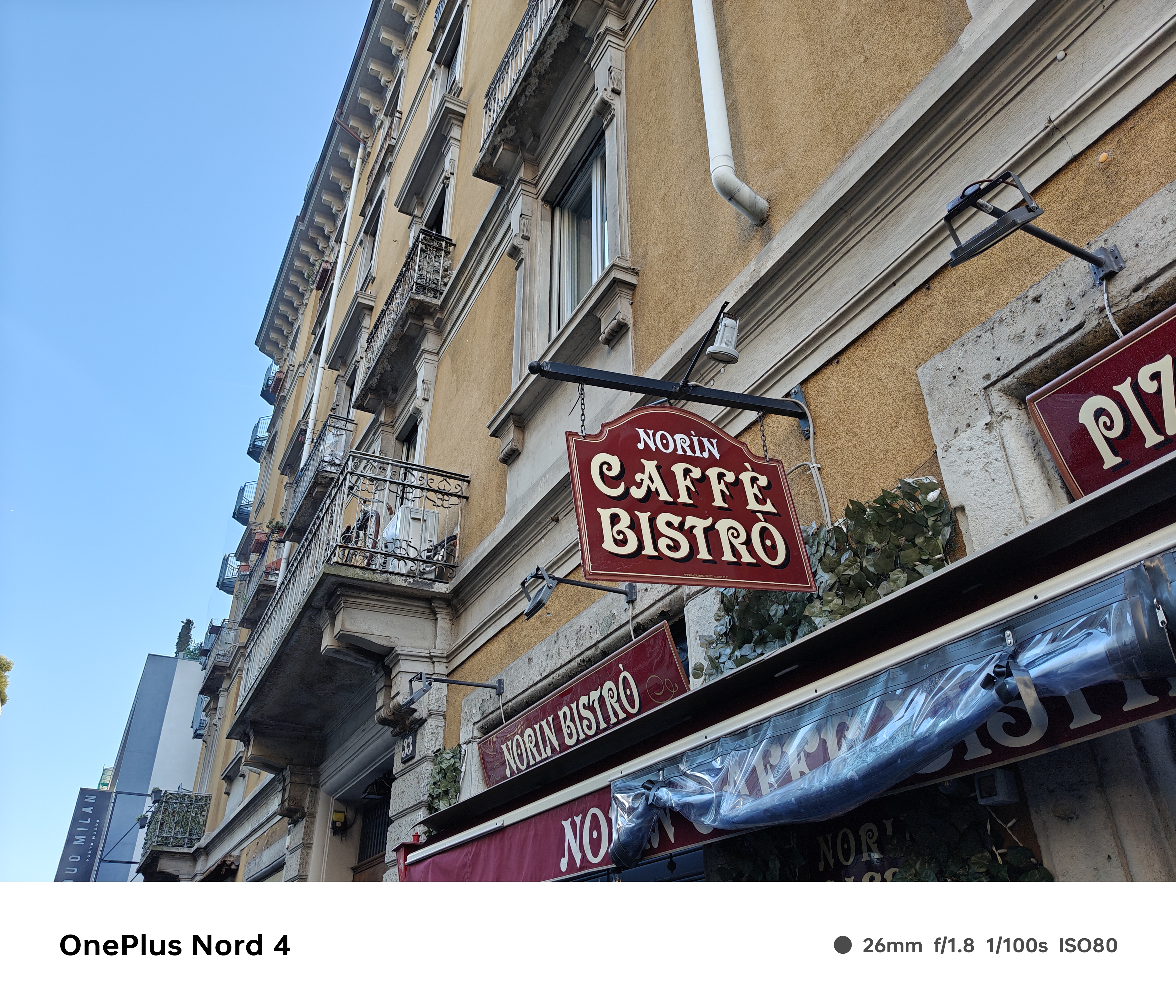


When the lights drop, the ultra-wide camera struggles even more, typically producing muddier-looking photos noticeably lower in detail. Both cameras handle mixed lighting relatively well, but in typically dark scenes, the primary camera should be any Nord owner's go-to. Even the primary camera struggles in low light with moving subjects, relying heavily on OnePlus's computational photography to pull the scene together.
While the OnePlus Nord 4 doesn't have an optical zoom, the in-sensor zoom lets you comfortably punch in at around 4x for casual snaps in bright environments, and up to 2x if you need a quality picture.
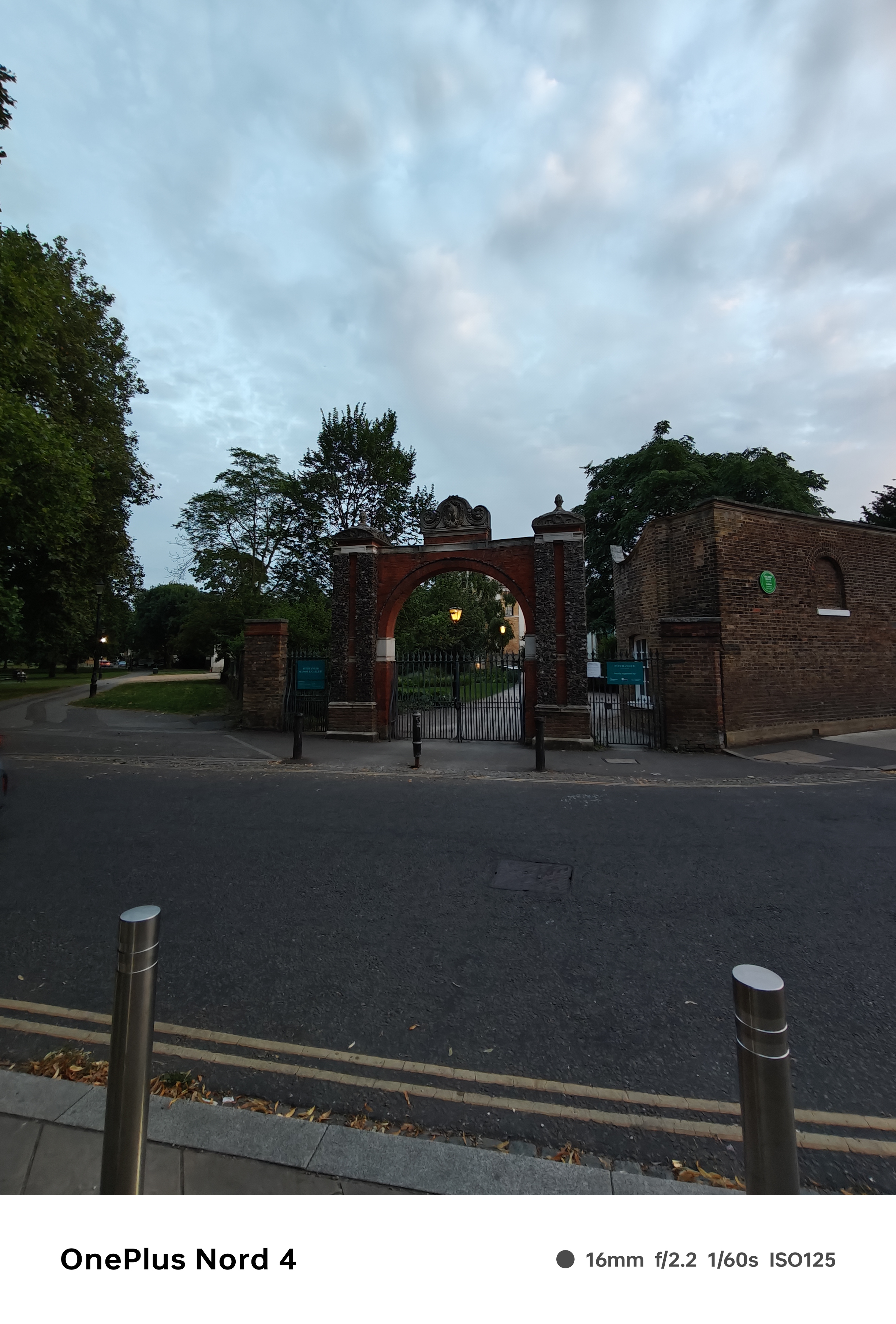

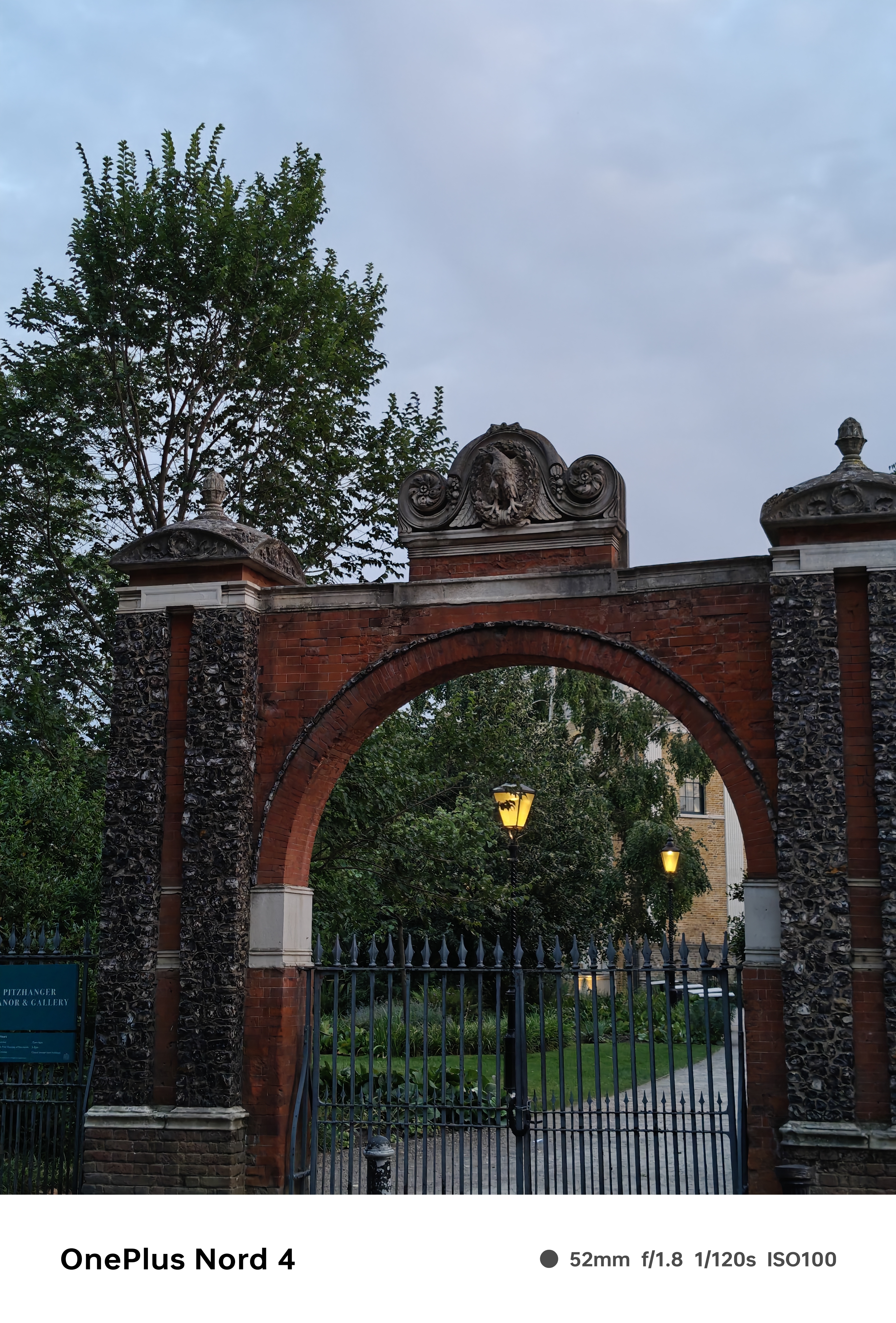
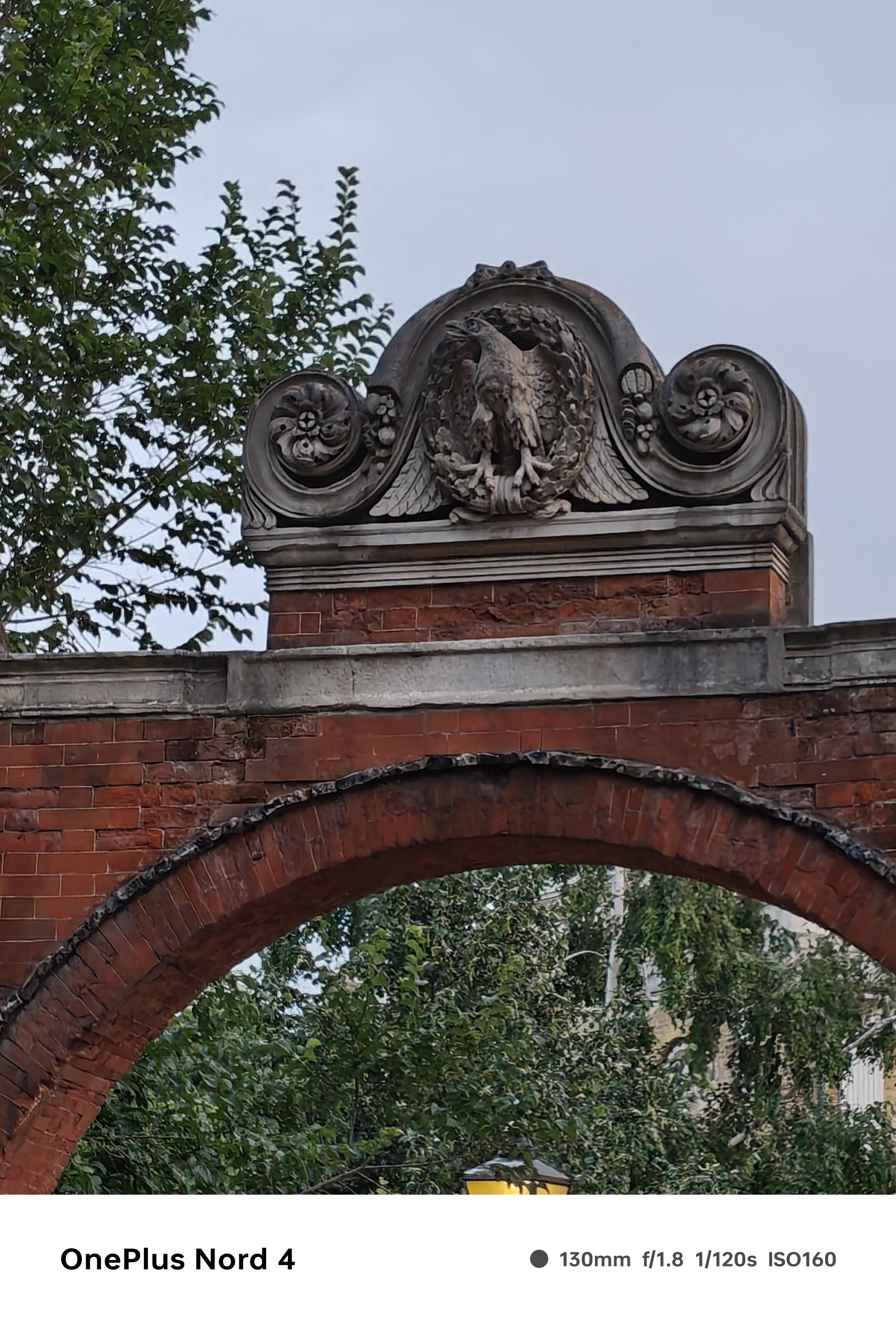
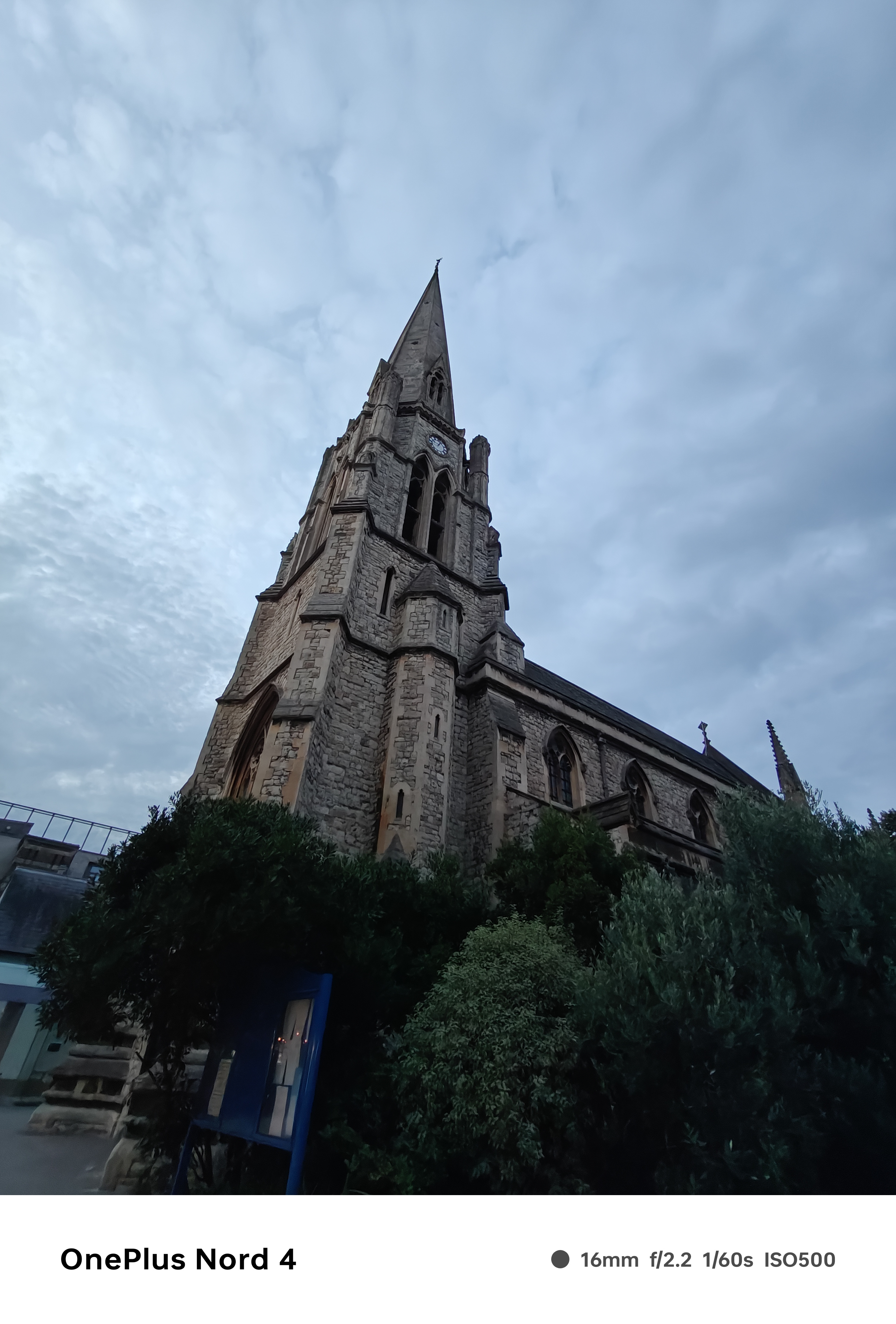
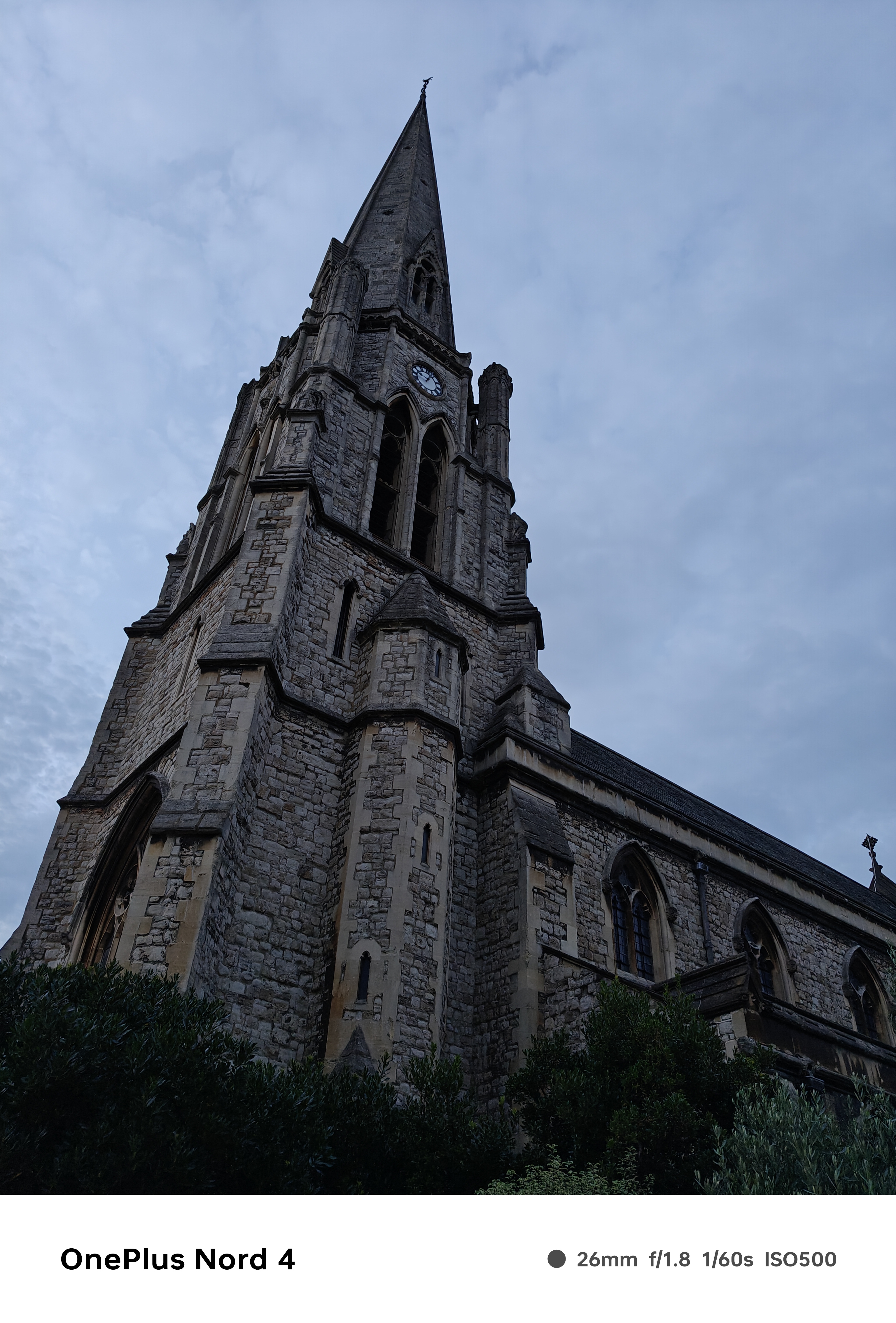
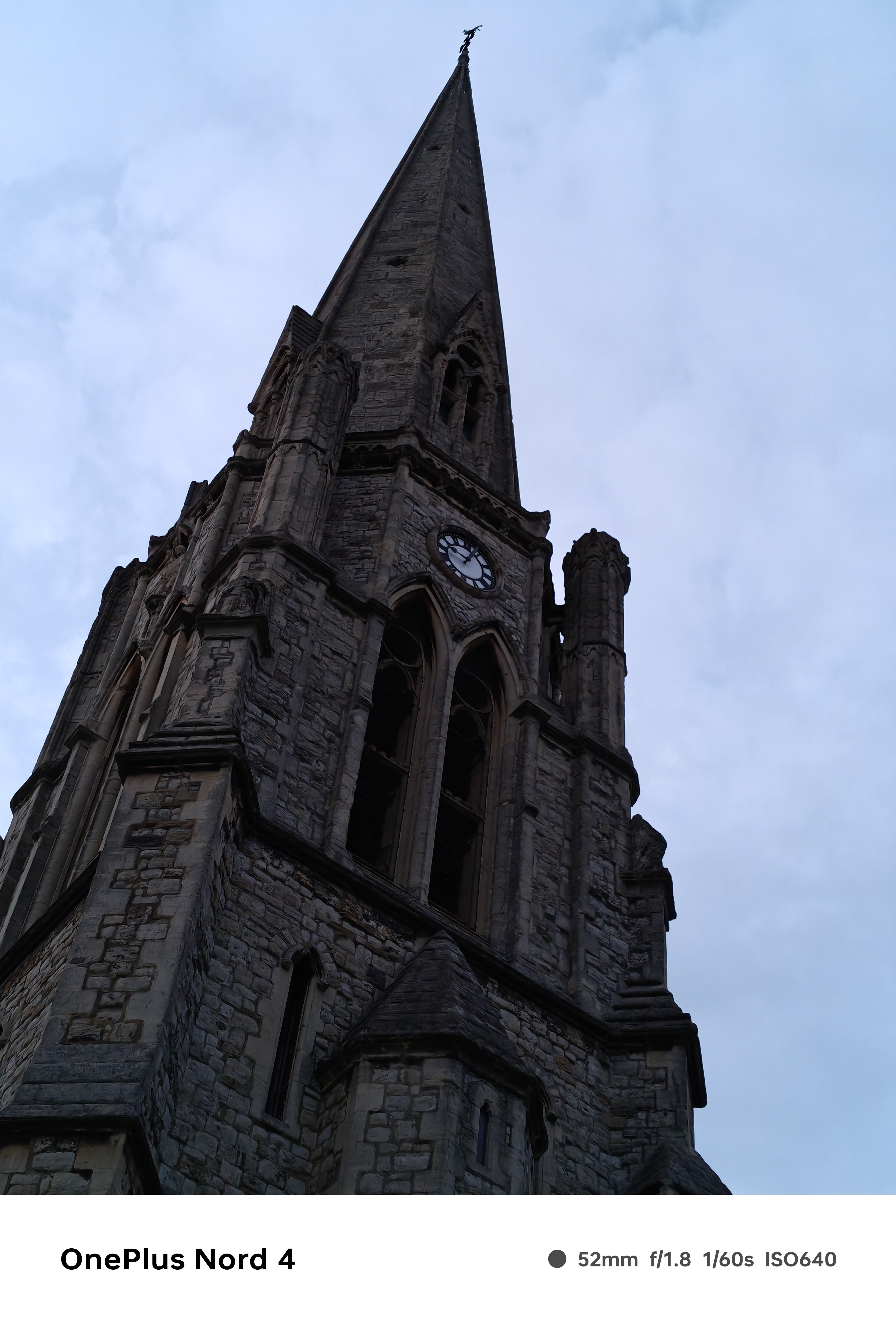
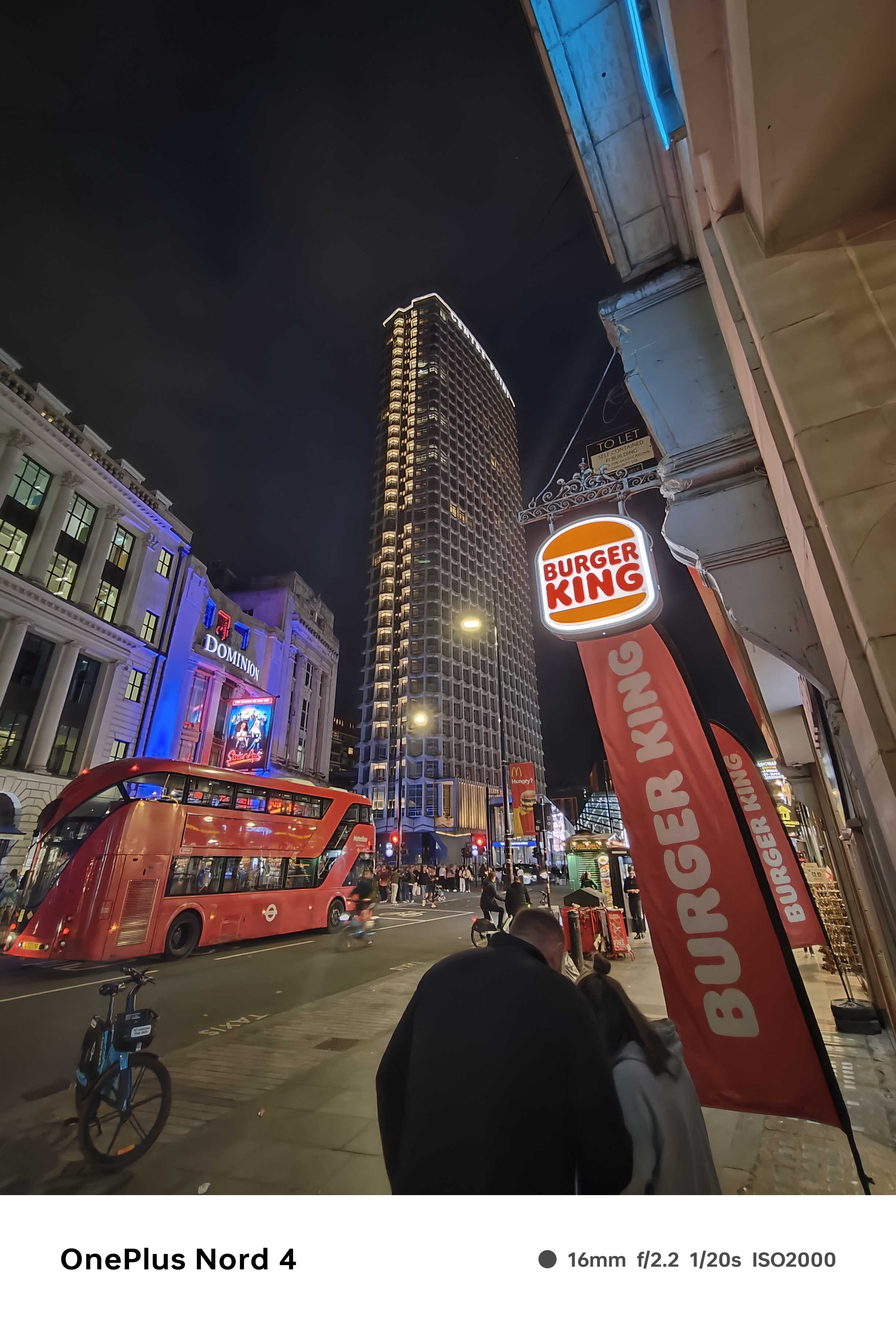
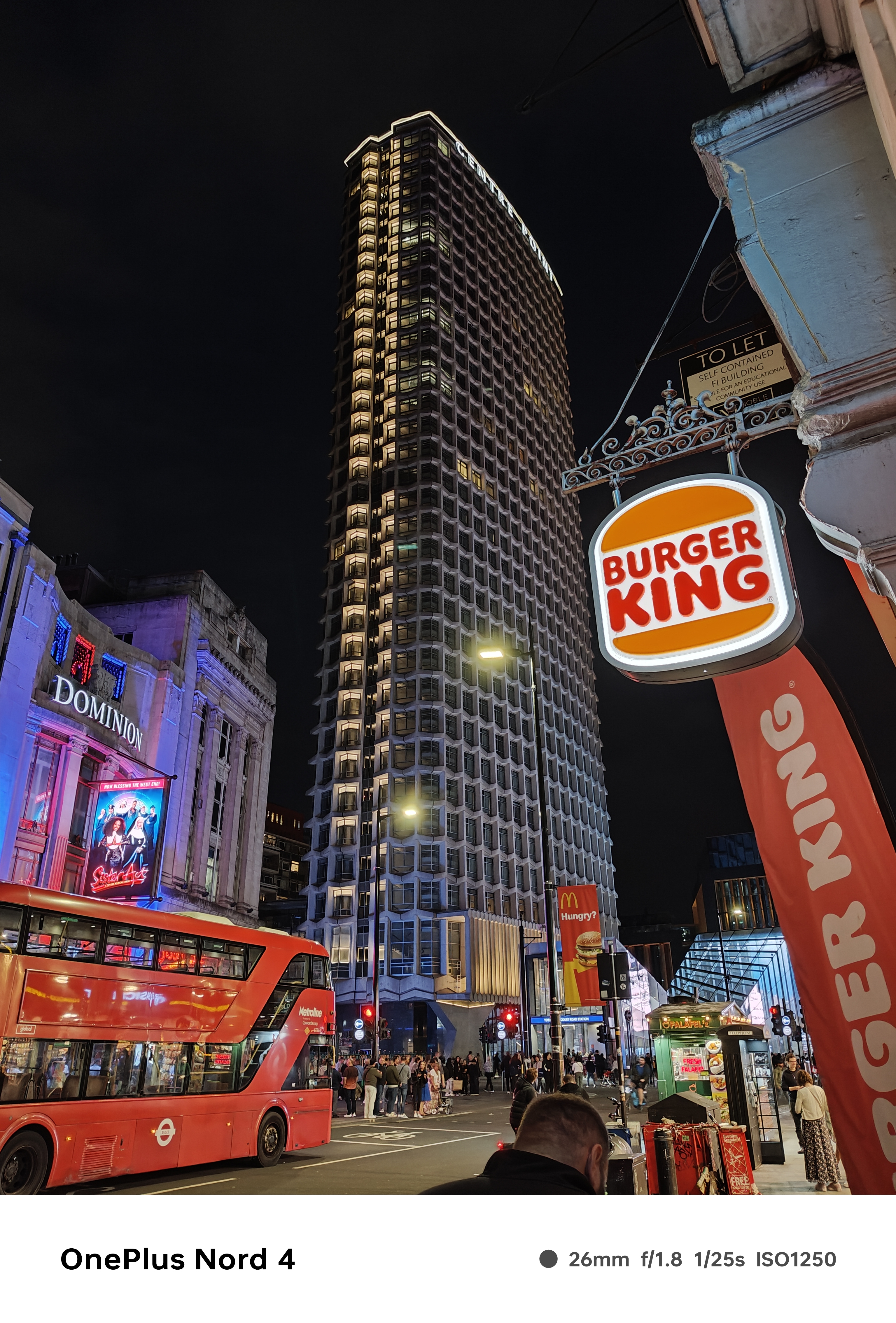
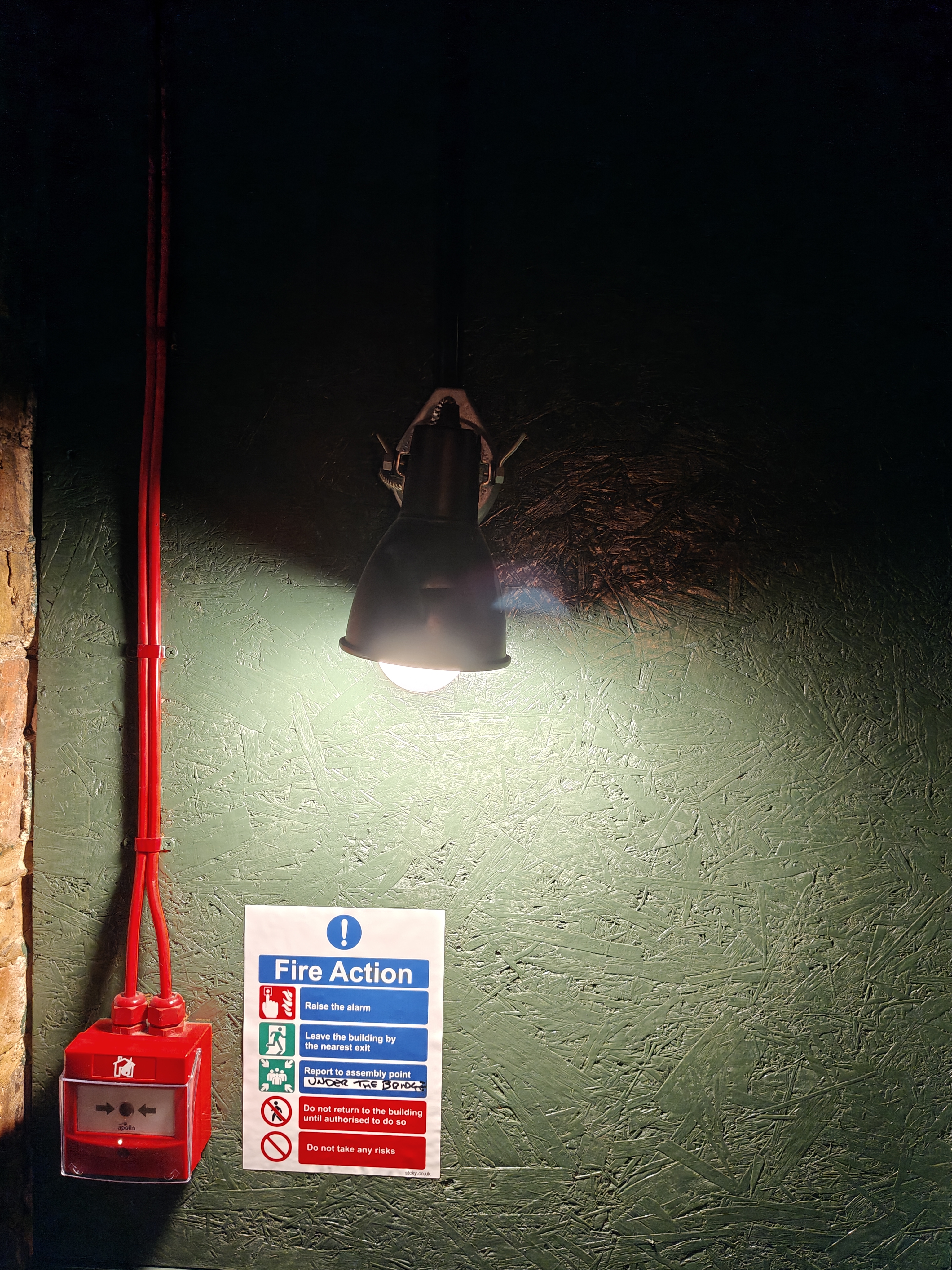
The Nord 4's selfie camera takes flattering selfies. While they're a touch low on detail, OnePlus's processing helps balance faces and backgrounds, with the adjustable beauty mode and portrait features likely able to get the type of shot you're looking for.

The Nord 4's primary camera captures great-looking 4K video at up to 60fps, while the ultra-wide's footage is comparatively weak, capping out at 1080p resolution. The selfie camera also caps out at 1080p, putting it in the same camp as the ultra-wide, though it's passable for a front camera.
Provided you're happy sticking with the primary camera, the Nord 4 will do a great job for the money, with its video looking smooth and crisp for the most part. At night, it does struggle, but you need top-tier flagships like the Xiaomi 14 Ultra to get remotely usable nighttime footage when the lights drop. For any vloggers who want 4K selfie capture or ultra-wide, high-impact footage, the Nothing Phone (2a) Plus edges ahead of OnePlus.
OnePlus Nord 4 Additional Features
OnePlus's six-year fluency promise is a big sell for the Nord 4, but what does that actually mean? The phone launches with Android 14, and OnePlus will push four major OS updates, taking it all the way up to Android 18. You can get buy with an out-of-date version of Android, though, especially if you have the latest security patches, so OnePlus promises six years of security updates. The final piece to the fluency puzzle is certification from a third-party that after six years of simulated typical use, the Nord 4 still runs smoothly.
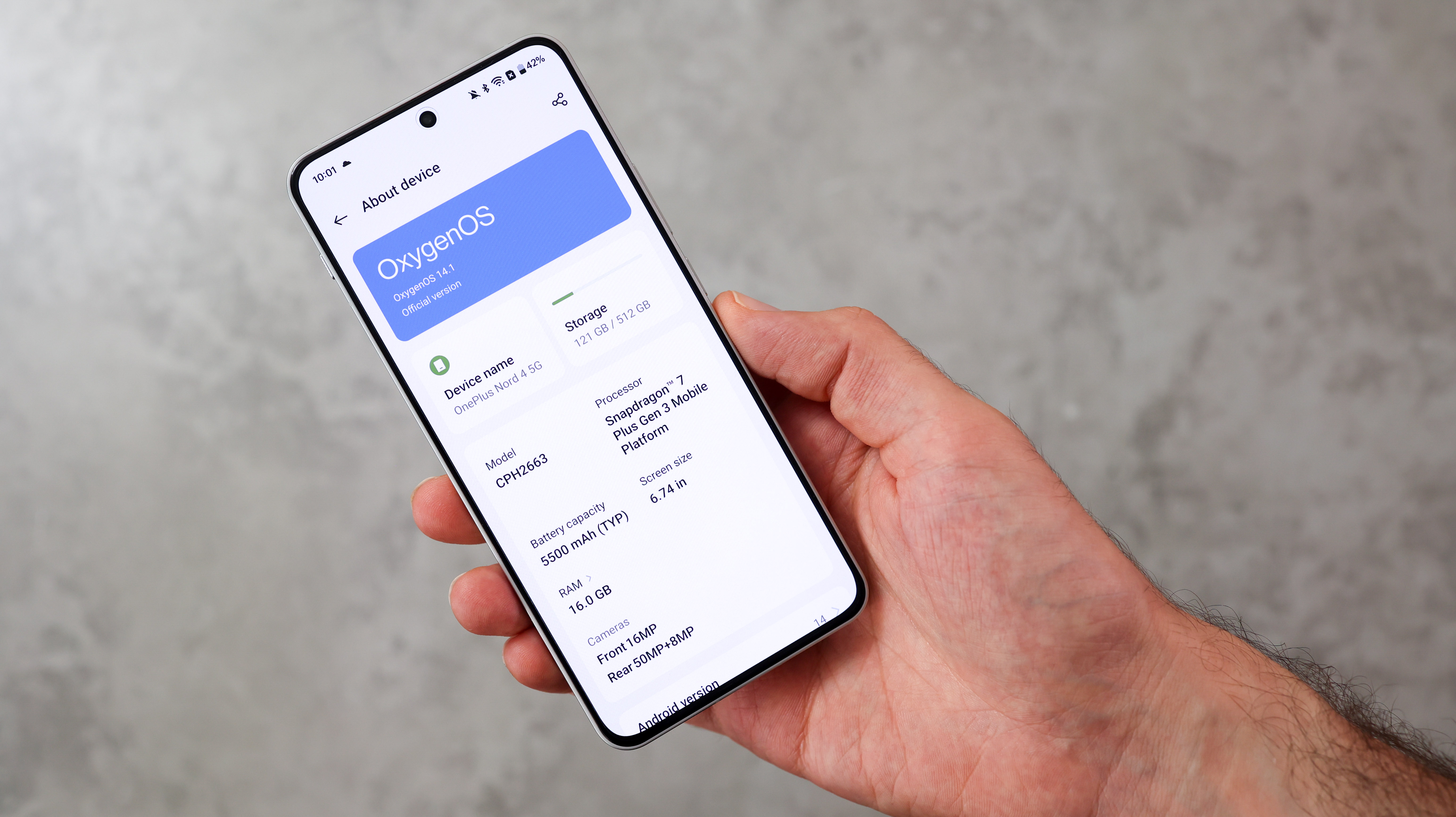
An addendum to OnePlus's promise: the Nord 4 has the biggest battery of any of its main competitors, which should also reduce the noticeable effects of battery degradation. This adds another string to the phone's six-year fluency promise.
This is an excellent start for a phone at the Nord 4's price, and the fact the core experience is smooth builds on this. OnePlus does load up some handy 'AI' features on the Nord 4, so it's able to read webpages out loud and summarise them, or transcribe and summarise voice recordings. All these features worked well.
Performance from the Snapdragon 7+ Gen 3 chipset was reliably competitive, playing back demanding games at medium graphics settings relatively well, and the phone's 256GB or 512GB storage gives you plenty of room for content. There is no microSD card or eSIM, though the dual-SIM slot does support two physical SIM cards.
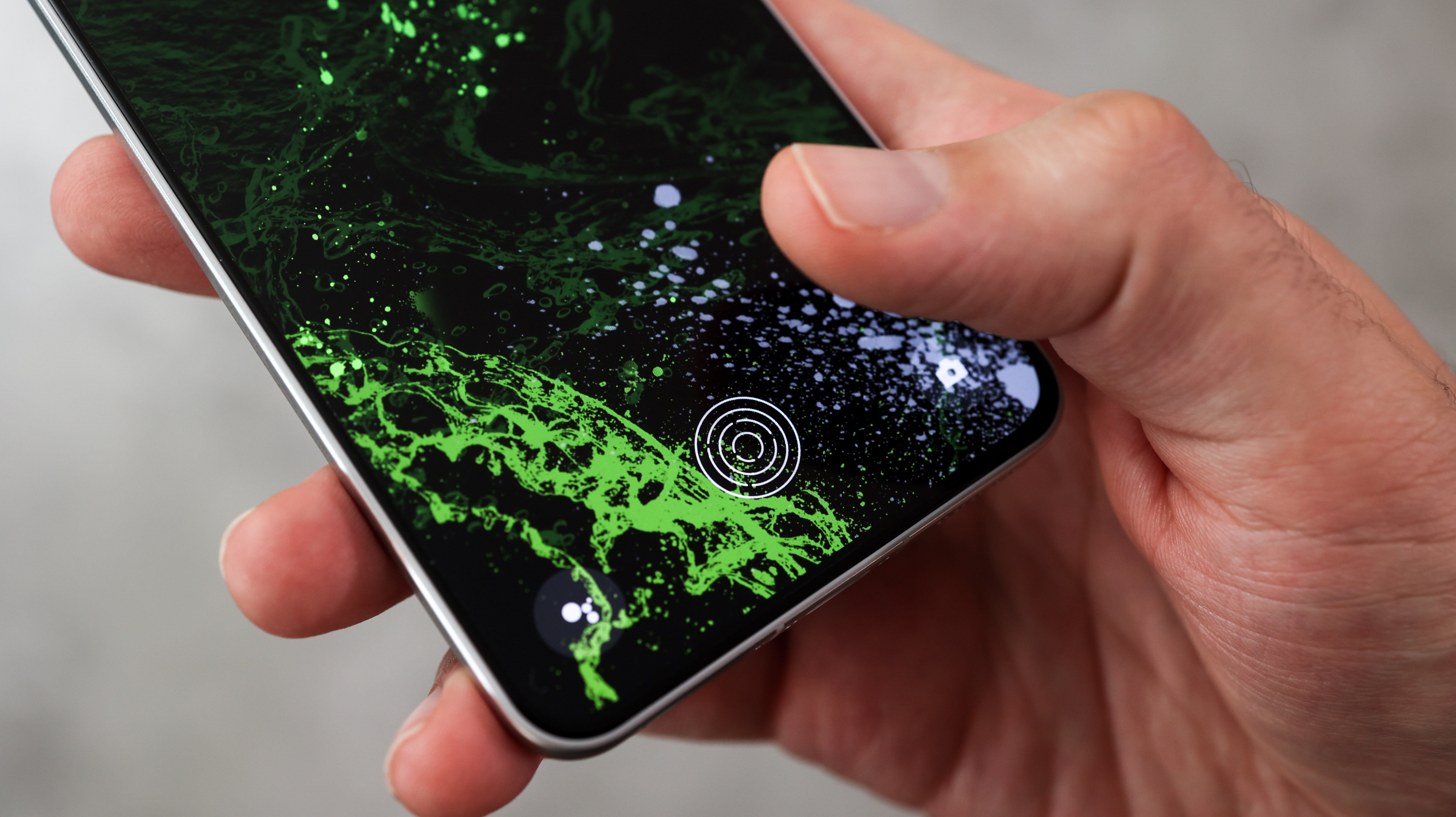
Thanks to a large 5,500mAh battery, the OnePlus Nord 4 comfortably lasts a full day of heavy use and two days of light use. There's no wireless charging, but we wouldn't expect it at the phone's price. Fast 100W charging powers up the phone in around 30 minutes, making it very convenient to quickly top up in a pinch.
OnePlus Nord 4 Verdict
The OnePlus Nord 4 is a very balanced phone. Everything about it is good to great, including the camera experience, despite it missing out on a quality ultra-wide and 4K-recording selfie camera.
What makes the Nord 4 such a smart buy is how geared it is to last for a long time. Anyone who hates updating their smartphone and doesn't need the very best camera could pick this up and – if OnePlus's promise holds-up – hang onto it for six years.
So while it isn't the best camera phone of 2024, the Nord 4 could be the most sensible option on the market. It won't break the bank, has plenty of storage, power, interesting styling, a great screen, and fantastic battery life.
For anyone who needs 4K video across all front and rear cameras, the Nothing Phone (2a) Plus is a smart choice. Gamers who want more grunt, the Poco F6 and F6 Pro are powerful alternatives. And if you want to spend a bit more on a more robust camera system, the Pixel 8a could edge ahead while also bundling in wireless charging, though it will force you to take a big hit on storage, and its primary camera's video is actually weaker than that of the Nord 4.
